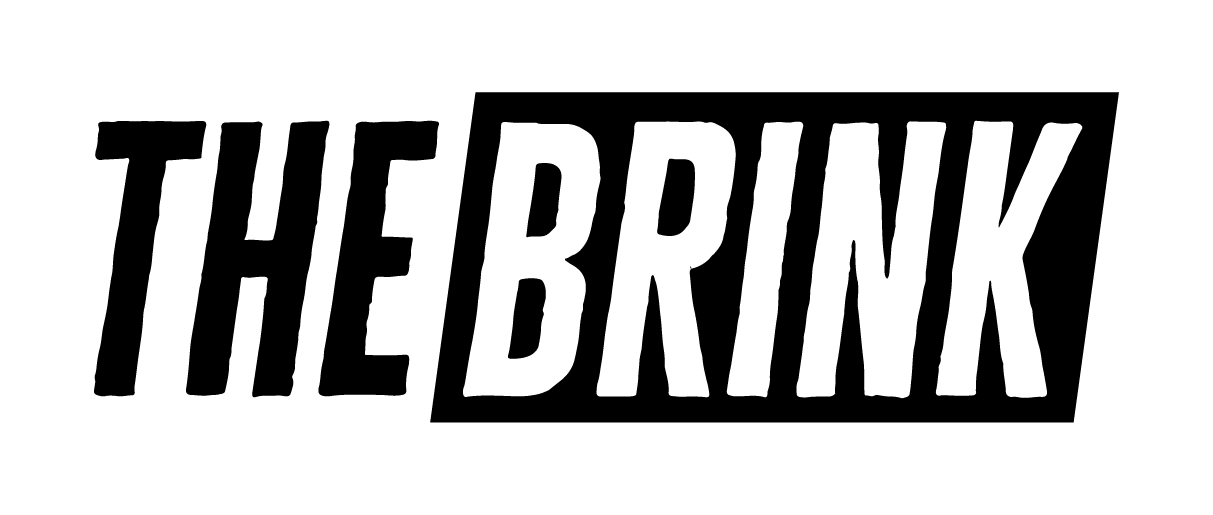Mined-Out Souls: Why We’re Numb, Overstimulated, and Quietly Folding In — And How to Feel Human Again in the Age of Emotional Extraction
We’re not falling apart — we’re folding in. From ambient numbness to emotional strip-mining, here’s why modern life feels off — and how we might begin to feel human again.
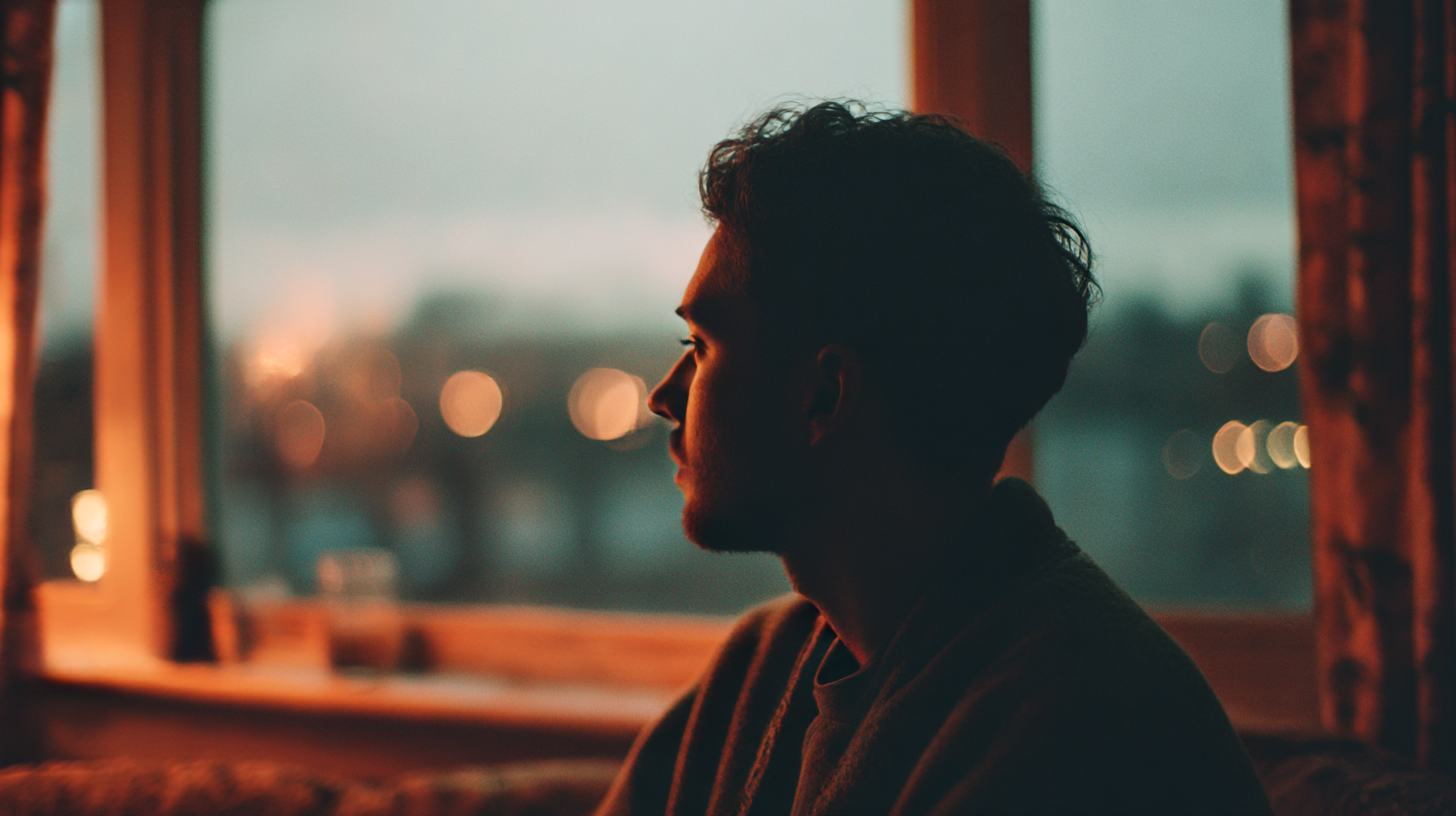
How are you feeling? If I was to hazard a guess, I would say you're probably not anxious. Not depressed. You’re doing… fine. But something's not quite right. You’re somewhere between stuck and tired. You’ve become weirdly adept at dealing with an unending series of global crises. You're not drowning, but you're not exactly thriving either.
British documentarian Adam Curtis said in a recent interview we’re struggling to describe how it feels to live in our time. And he's right. Not because there's nothing to say, but because what we feel isn't loud. It doesn't announce itself with a crisis. It hums in the background like a broken fridge: persistent, low, almost invisible. But definitely there.
That feeling? It's the weather of our age. And if you zoom out, you'll see it everywhere. In the rising rates of burnout and emotional numbness. In the hollow eyes of 20-somethings who were promised freedom and got survival. In the endless Instagram stories about productivity and the simultaneous yearning to disappear. We are tired, melancholic, and quietly pulling away from the world into ourselves.
This isn't just a personal mood. It's the ambient emotional state of late-stage capitalism, post-pandemic disillusionment, and an internet rewired for dopamine instead of connection. It's how humanity feels today. And it deserves a better explanation than "mental health is bad."
So I’ve taken upon myself to try and name it. In this week’s Brink, I’m going to attempt to put a finger on how we’re all feeling. To try and articulate how we’re all coping with that is happening right now, and attempt to suggest a way out of this sticky malaise. I'm calling it the age of ambient uncertainty.
Listen to the whole newsletter on my podcast, below. 👇👇

The Emotional Climate of Right Now
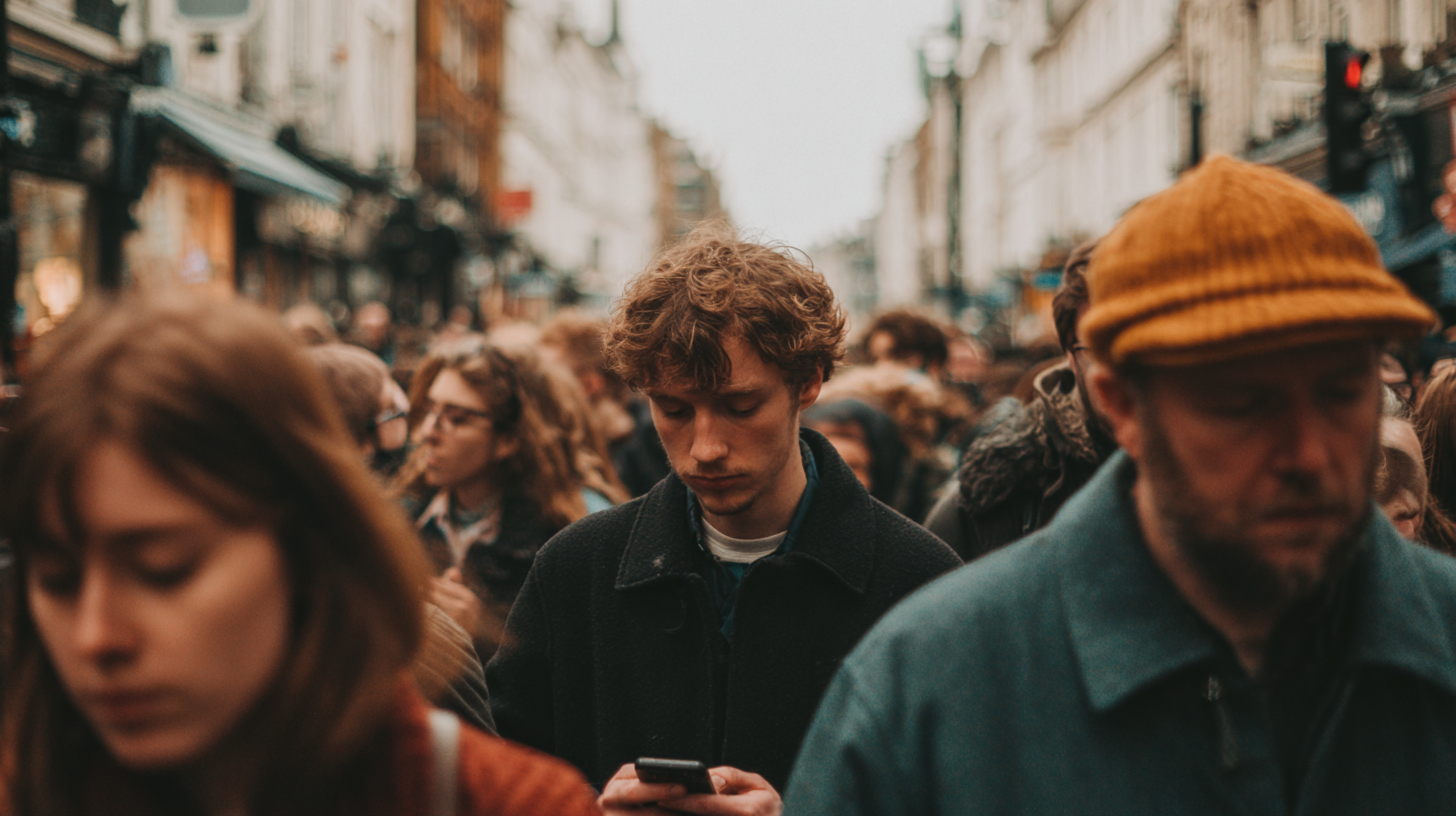
Three words keep coming up when I talk to people: clients, friends, strangers on Reddit trying to make sense of themselves.
- Melancholy: a deep, unshakable sense of sadness-not loud or specific, but always there. A grief without a grave.
- Powerlessness: the sense that no matter how hard you try, you can't change the things that matter. Governments, tech, the planet: it all feels like it's slipping through your fingers.
- Retreat: the shrinking of your world down to what you can control: your morning routine, your bedroom, your screen, your playlists, your coping mechanisms.
We're not falling apart. We're folding in. Quietly. Elegantly. Invisibly. This is the age of ambient uncertainty.
I see people switching off their cameras in Zoom meetings: not because they're rude, but because they can't bear to look at their own face any longer. I see WhatsApp groups going silent. Not out of conflict, but exhaustion.
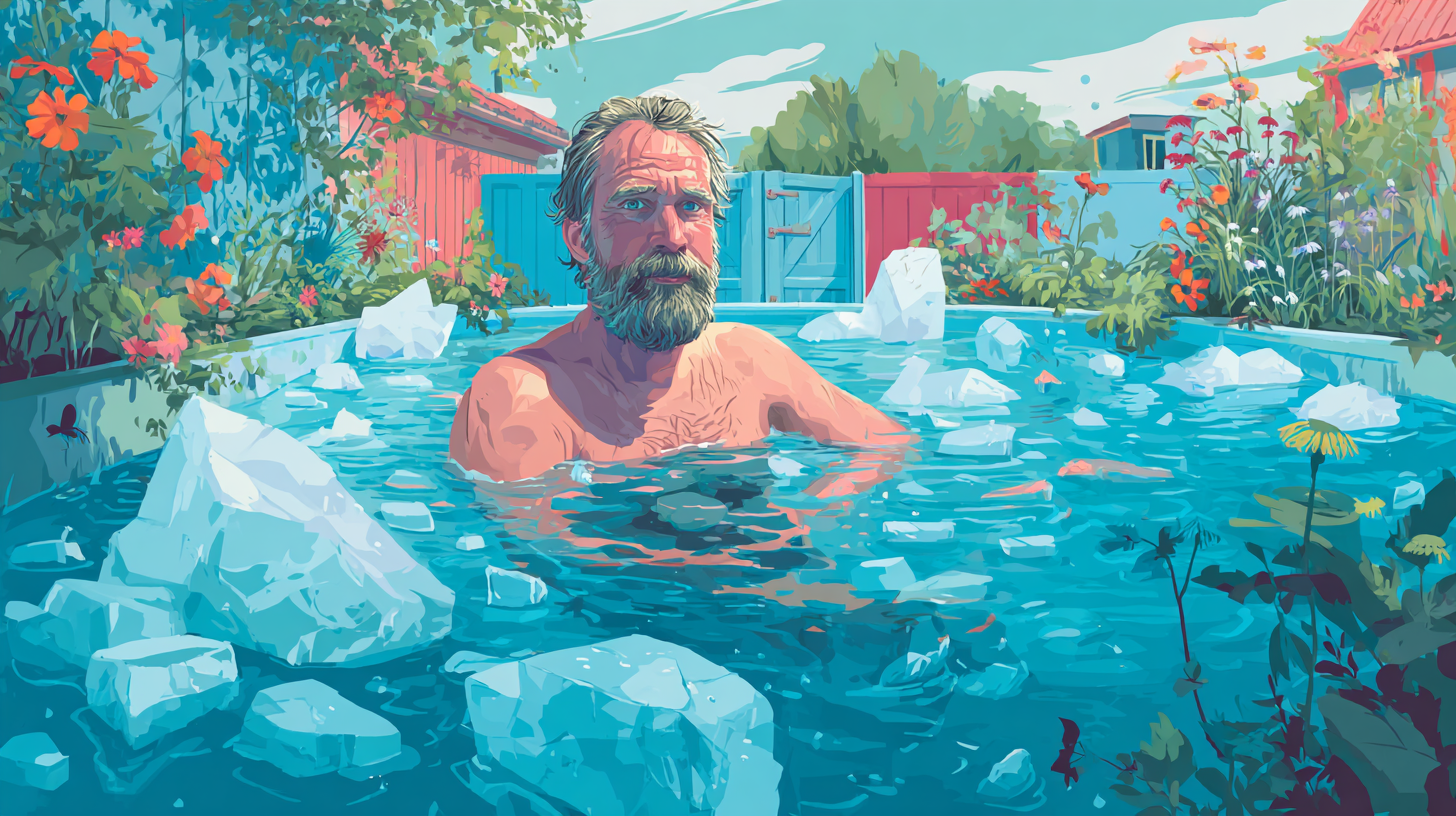
I see TikToks titled "things I used to enjoy but now feel nothing for." And the comments say: "Same." I see men in therapy telling me they're fine, then hesitating, blinking, and quietly asking: "Is it normal to not feel anything when something good happens?"
I see people curating their personalities like moodboards. "Void girl." "Burnout boy." "Doomscroller in recovery." These are not just aesthetics. They're diagnoses in disguise.
I see young men obsessing over cold showers, morning routines, biohacking, semen retention - not because they're thriving, but because they're terrified. If they stop optimising, they'll disappear.
I see wellness women burning incense in the same room they use for performance reviews.
I see men bench-pressing in silence because it's the only place they're allowed to feel powerful. I see people trying to feel real by filming themselves crying, just to watch it back and confirm that yep, the sadness was there. I see influencers talking about healing like it's a brand strategy. I see therapists online promising "quick breakthroughs." I see kids learning to describe their trauma before they know how to describe what they want.
I see headlines like "The Loneliness Epidemic" and "The Decline of Friendships" and "Gen Z Is the Saddest Generation Yet" and nobody knows what to do about it. I see protest movements that start in fire and end in silence. Hope that curdles into memes. Rage that becomes ironic detachment. I see people caring so deeply that they short-circuit-and then disappear into curated numbness, because staying engaged feels like dying slowly.
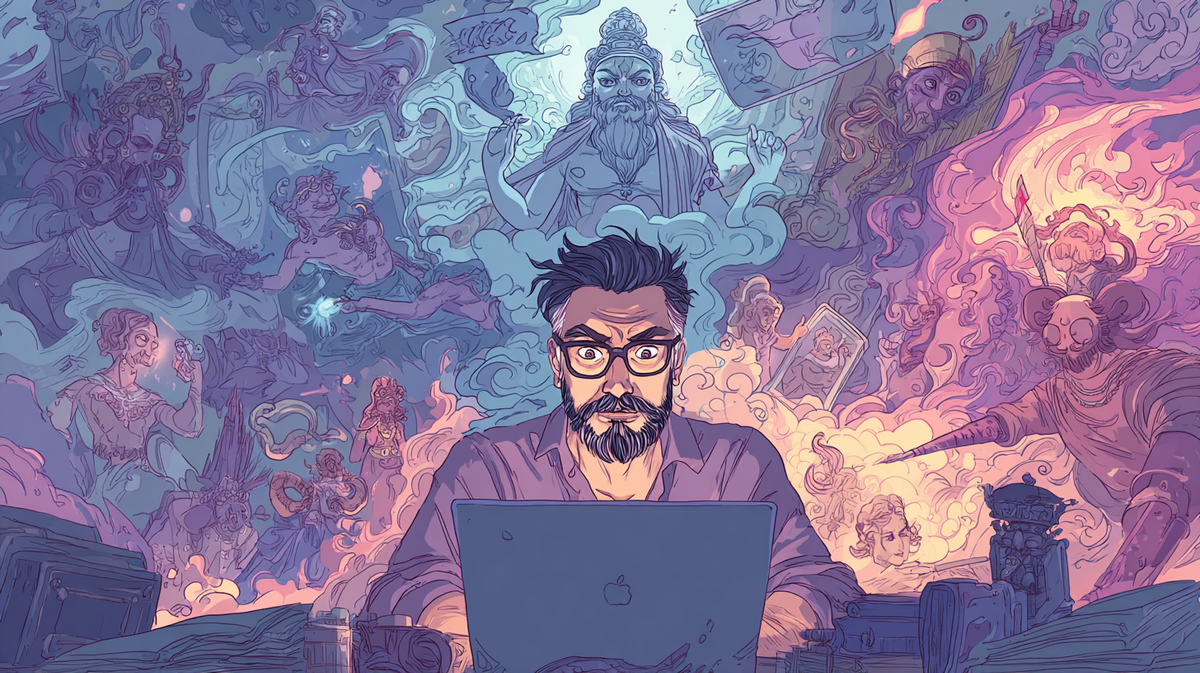
I see a generation trying to build meaning out of aesthetics. Cottagecore. Dark academia. Meta-irony. All attempts to feel something in a world that's forgotten how to give you anything solid. I see people who want to care. Who want to feel. Who want to belong. But every time they reach out, the world either sells them something or screams back at them.
So they shrink. They go quiet. They fold their feelings into smaller and smaller corners of themselves. And if you ask them how they're doing, they'll say: "I'm fine." But their eyes say: "Please don't ask me to feel anything I can't afford to carry."
This is ambient uncertainty: I have no control and no clue over what happens next.
Why I'm Writing This
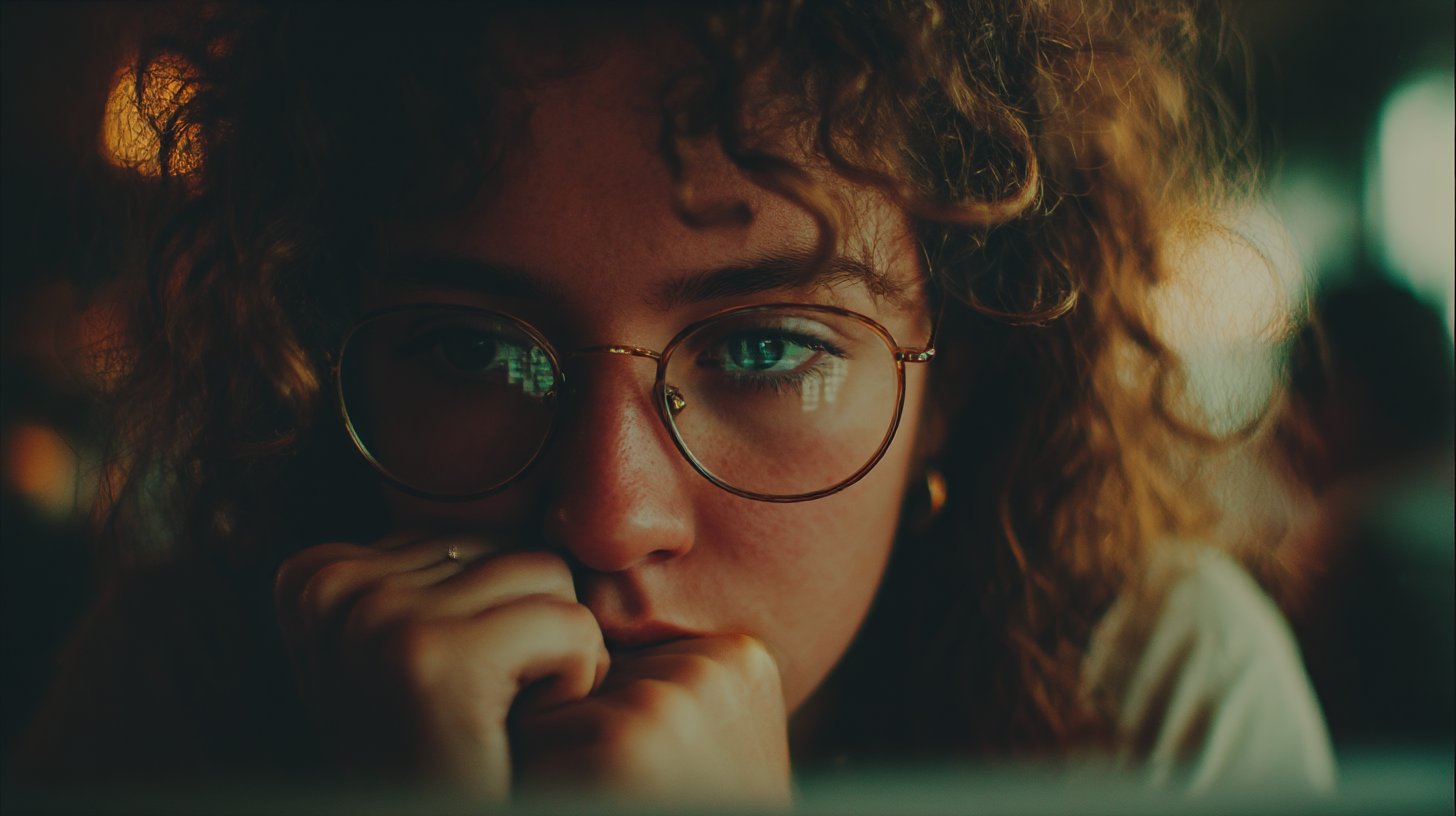
Before I jump into whatever this thing is: a mission statement, a rant, an unmet need, a cry for help!? I want to try and explain why I felt the need to write something like this.
I've spent 12 years in therapy trying to thaw a numbness I didn't have language for. Because for most of that time, I didn't call it numbness. I called it overthinking. I called it being fine. I called it "just tired." But really, I didn't trust the idea of smallness. I didn't trust stillness. I thought retreat meant failure. Only later did I realise: it was the only thing keeping me intact.
I'm writing this because the stories I've been telling in my newsletter: the ones about isolation, about what it means to bring the dead back into the room using AI, about why we can't cope and why we're more alone than we let on, those stories weren't just about spinning a yarn or building a profile. They were autobiographies. They were therapy in public.
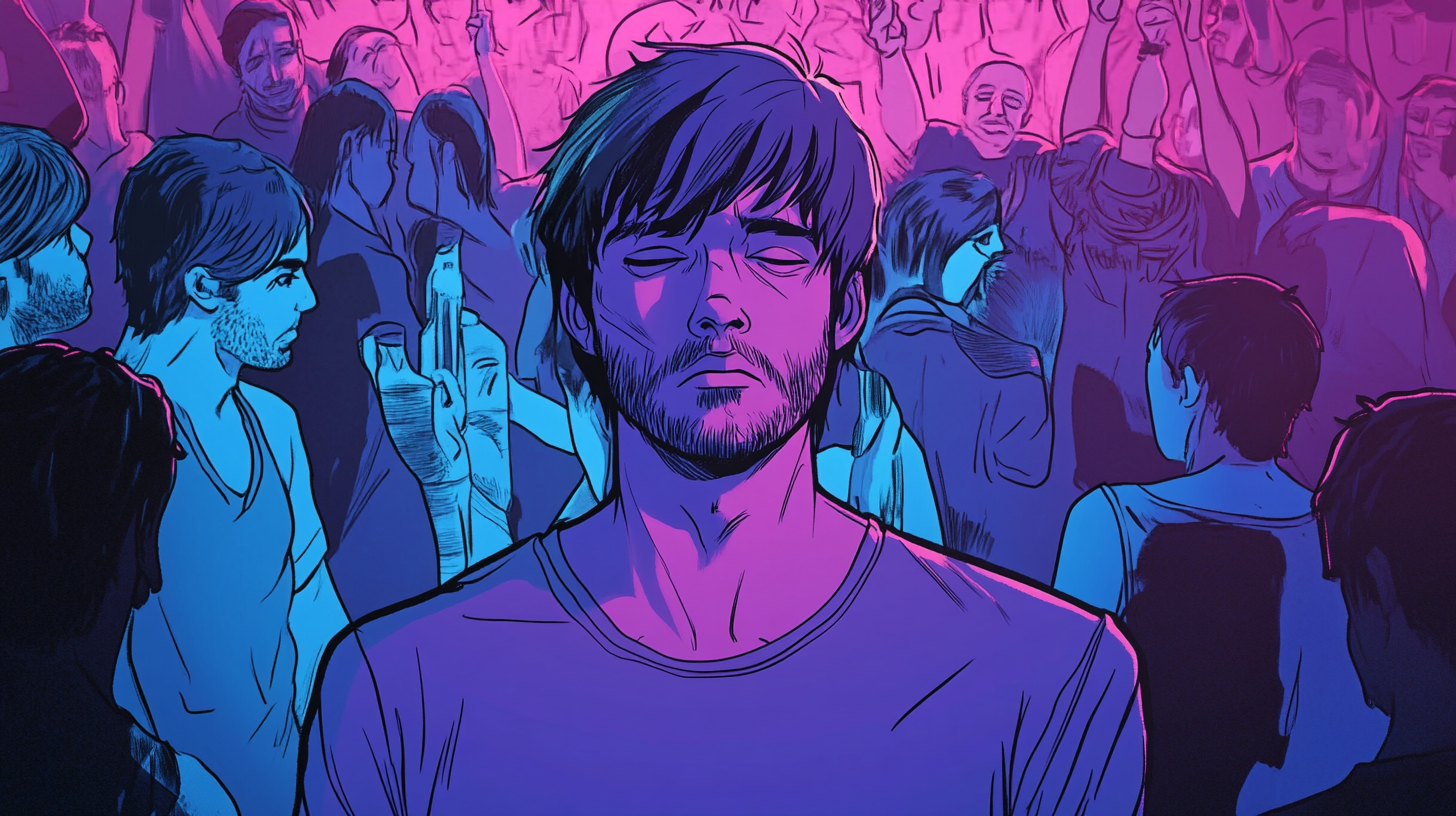
I'm writing this because what I hear in the therapy room - over and over - is the same story out of someone else’s mouth. People saying, "I'm not really sad, I just don't feel much." Or, "I think something's wrong with me." People who are tired of trying, tired of feeling nothing, tired of not being able to feel tired.
I'm writing this because lately, I find myself spending more time than I'd like to admit scrolling through memes about childhood. About the '90s. About CDs and MSN Messenger. About the feeling of being bored in a living room that only had five TV channels. About phones that were attached to houses - and so, by default, so were you.
I miss that world. Not because it was better. But because it felt less fractured. Less performative. Less wired to panic. I miss drinking too much and worrying too little. I miss not knowing what was happening everywhere, all the time. I miss not being expected to turn everything I feel into content.
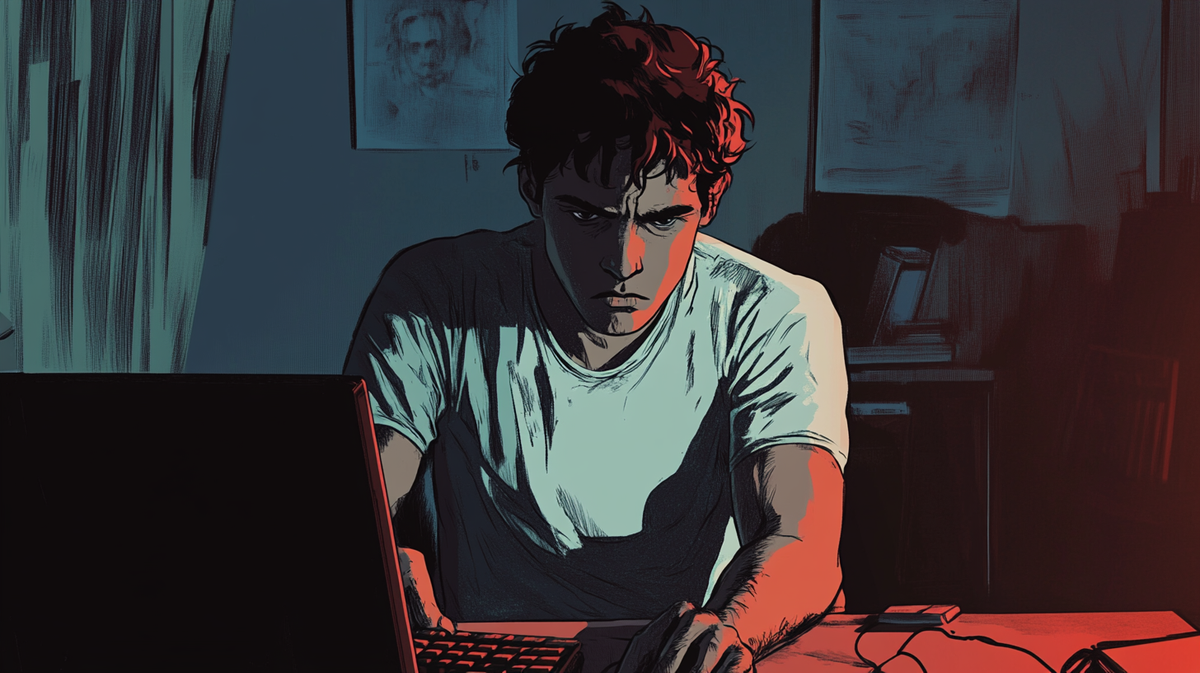
I'm writing this because I'm scared of the future. And I don't say that for effect, I say it because it's true. Some days I don't know where it's going. Some days I can't write. Some days I show up on the internet with something to say and immediately wish I hadn't. I'm scared of someone reading me the wrong way.
Scared of colliding with someone else's bad day. Scared of being in the wrong place at the wrong time. Scared of becoming a symbol when I'm just a person. I'm writing this because if I don't say it out loud, I'll end up saying nothing at all. And I think that's what this whole piece is, really. A refusal to stay quiet.
An attempt at drawing a map of the emotional terrain we're all walking, even if we don't have the words for it yet. I'm writing this because maybe, just maybe, naming it makes it feel a little less lonely. And because I want to feel something, too.
Anyway, back to the story.
Why Do We Feel Like This?
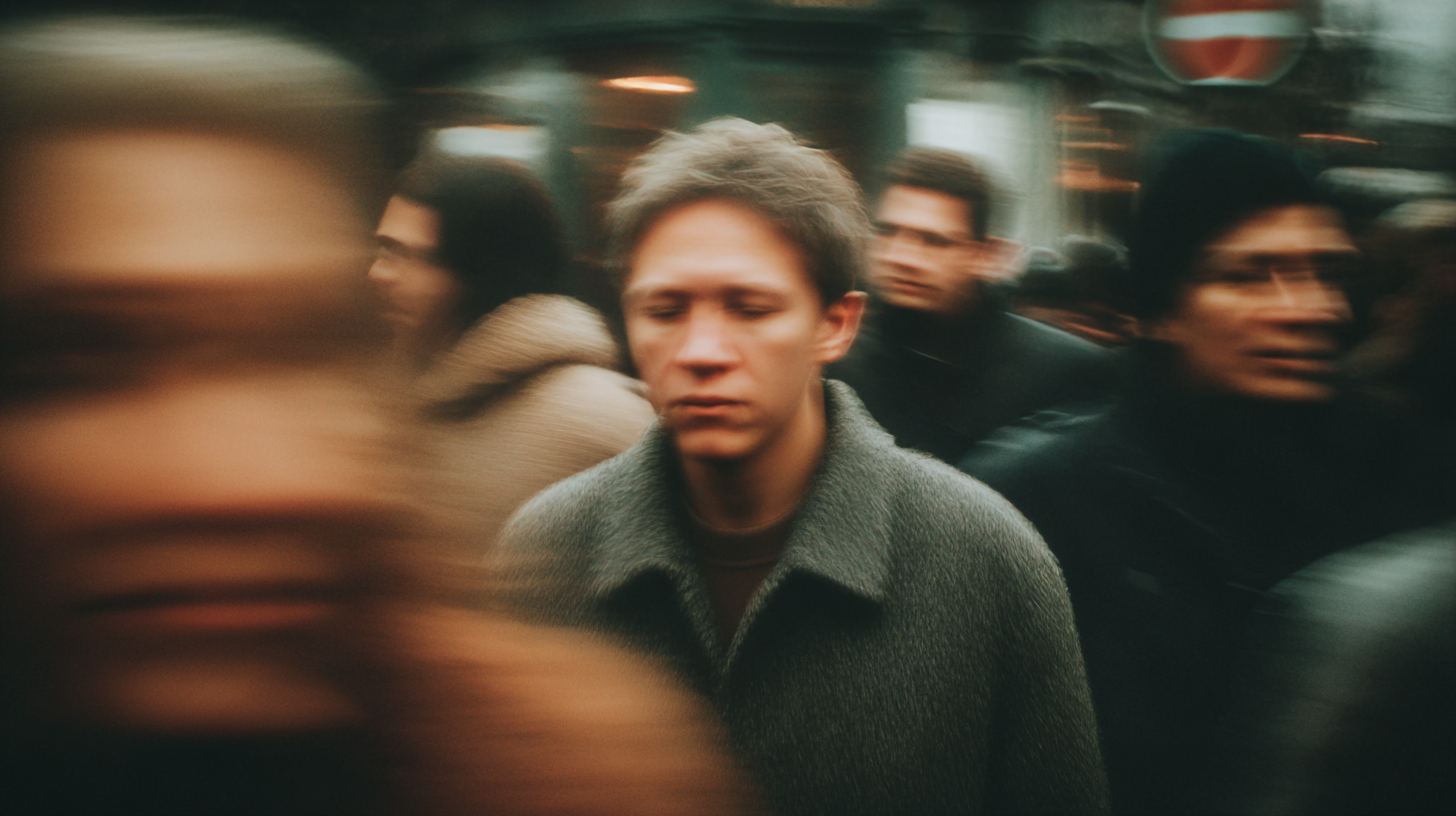
Let's start with psychology.
In the 1960s, researcher Martin Seligman discovered something called learned helplessness. He ran a study where dogs were repeatedly subjected to electric shocks. Some could escape; others couldn't. Eventually, the dogs who couldn't escape just gave up-even when an exit was introduced. They'd learned that nothing they did made a difference. So they stopped trying. We're the dogs.
Whether it's climate change, political corruption, or the crushing cost of living, we've been told again and again - explicitly or otherwise - that our actions don't matter. Protest? Ignored. Vote? Rigged. Work hard? You'll still be renting forever.
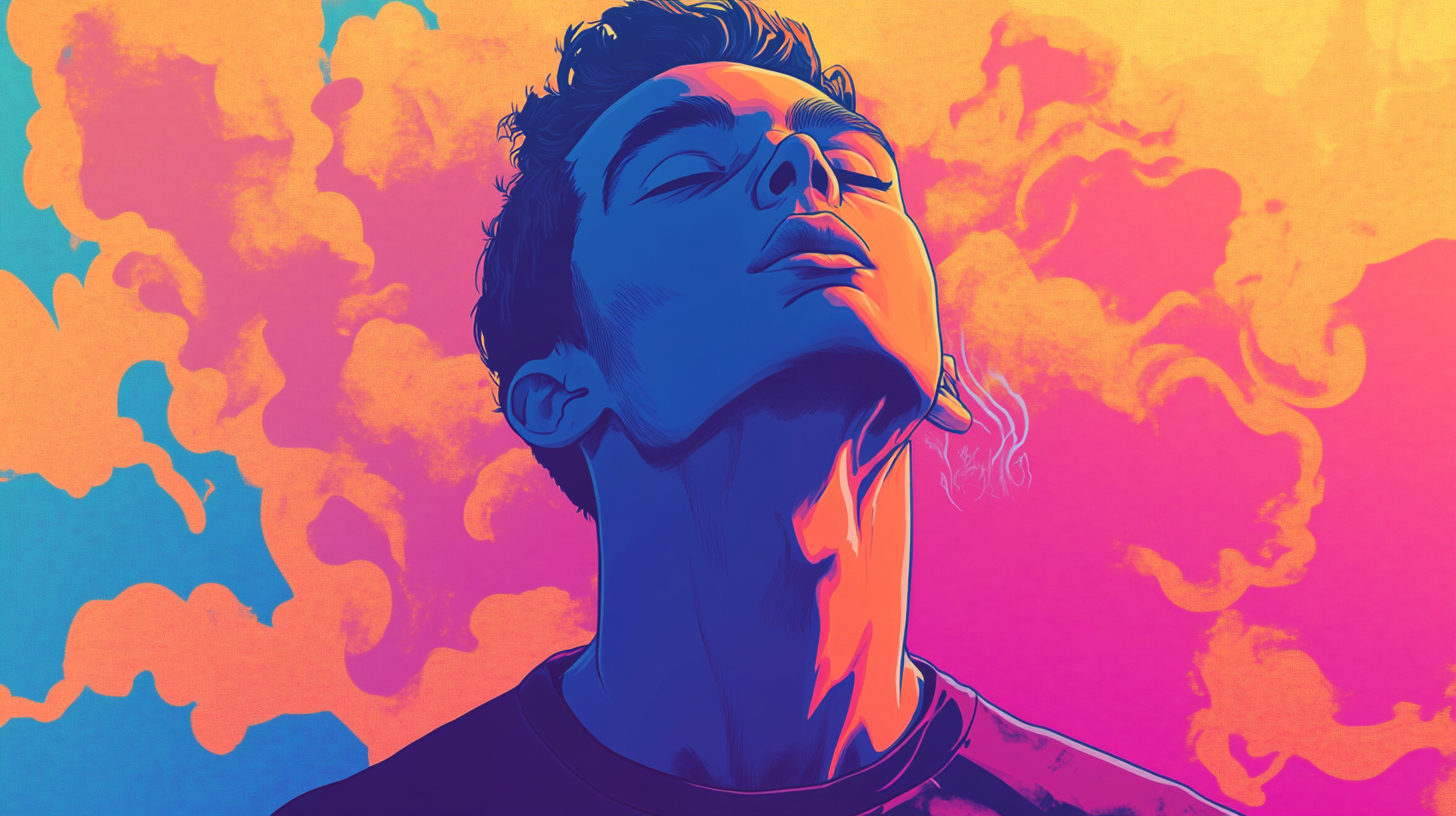
Eventually, like those dogs, we stop believing we can change anything. And in that moment, our nervous system doesn't just go into fight or flight. It goes into freeze. Shutdown. Emotional conservation. Numbness becomes the only way to survive the overwhelm of a world we can't control.
And What Philosophy Tells Us
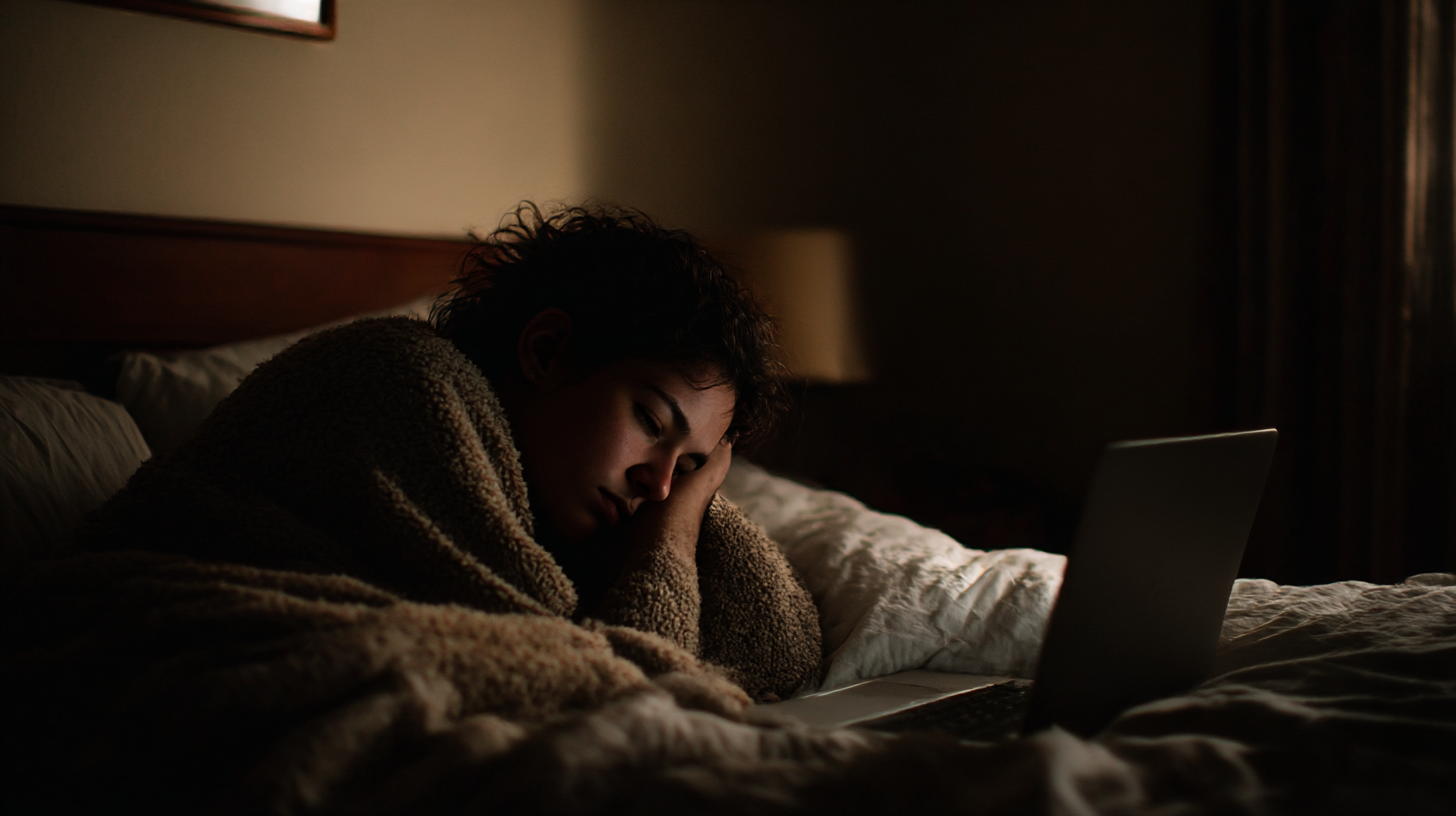
Of course, it's not just psychology. Philosophy saw this coming centuries ago. Existentialists like Kierkegaard, Camus, and later Zapffe all said the same thing in different words: human beings are meaning-making machines trapped in a meaningless universe. And if we become too aware of that fact - too conscious of the absurdity - we start to suffer.
In 1933, Norwegian philosopher Peter Wessel Zapffe wrote that the only way for humans to cope with this unbearable awareness was to shrink our consciousness. To distract ourselves. To suppress. To create illusions of meaning. To not think too hard.
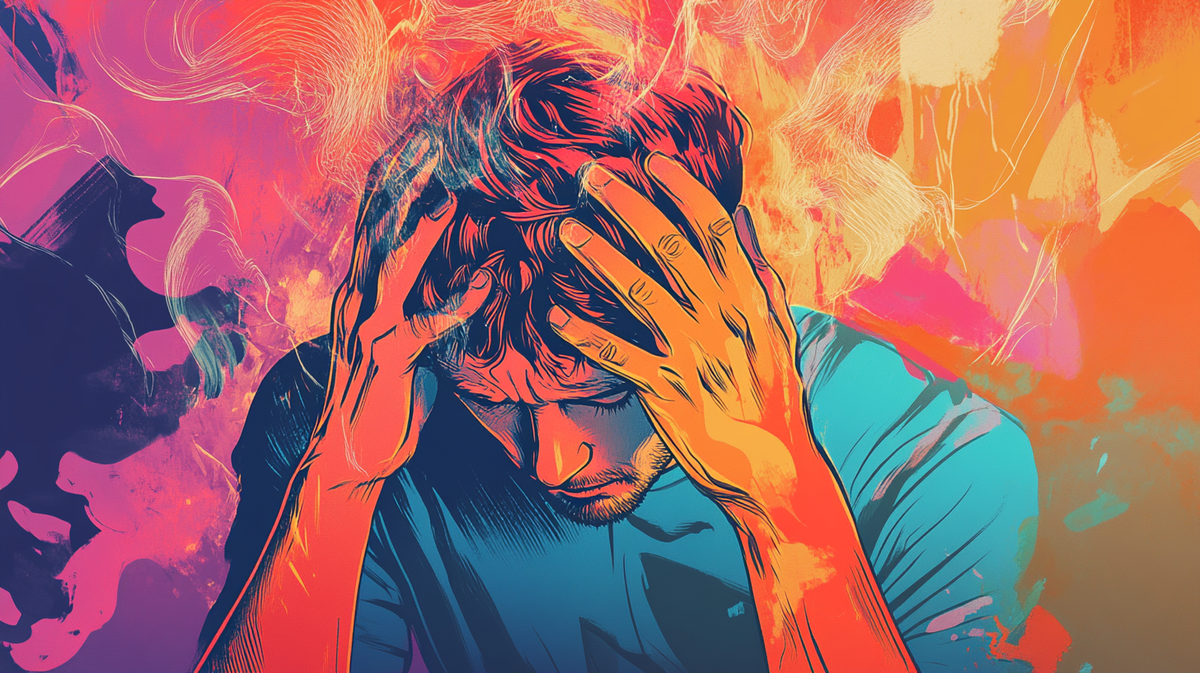
What Zapffe described as a 20th-century condition is now a 21st-century default setting. You wake up, scroll for 40 minutes, and already you've seen five wars, seven hot people, and three productivity hacks. Your brain can't hold all that. So it does what Zapffe said it would: it turns the volume down on your feelings.
You think you're broken. But maybe you're just overloaded by a system that’s been feeding on you this entire time.
The New Extraction: Capitalism's Final Frontier Is You
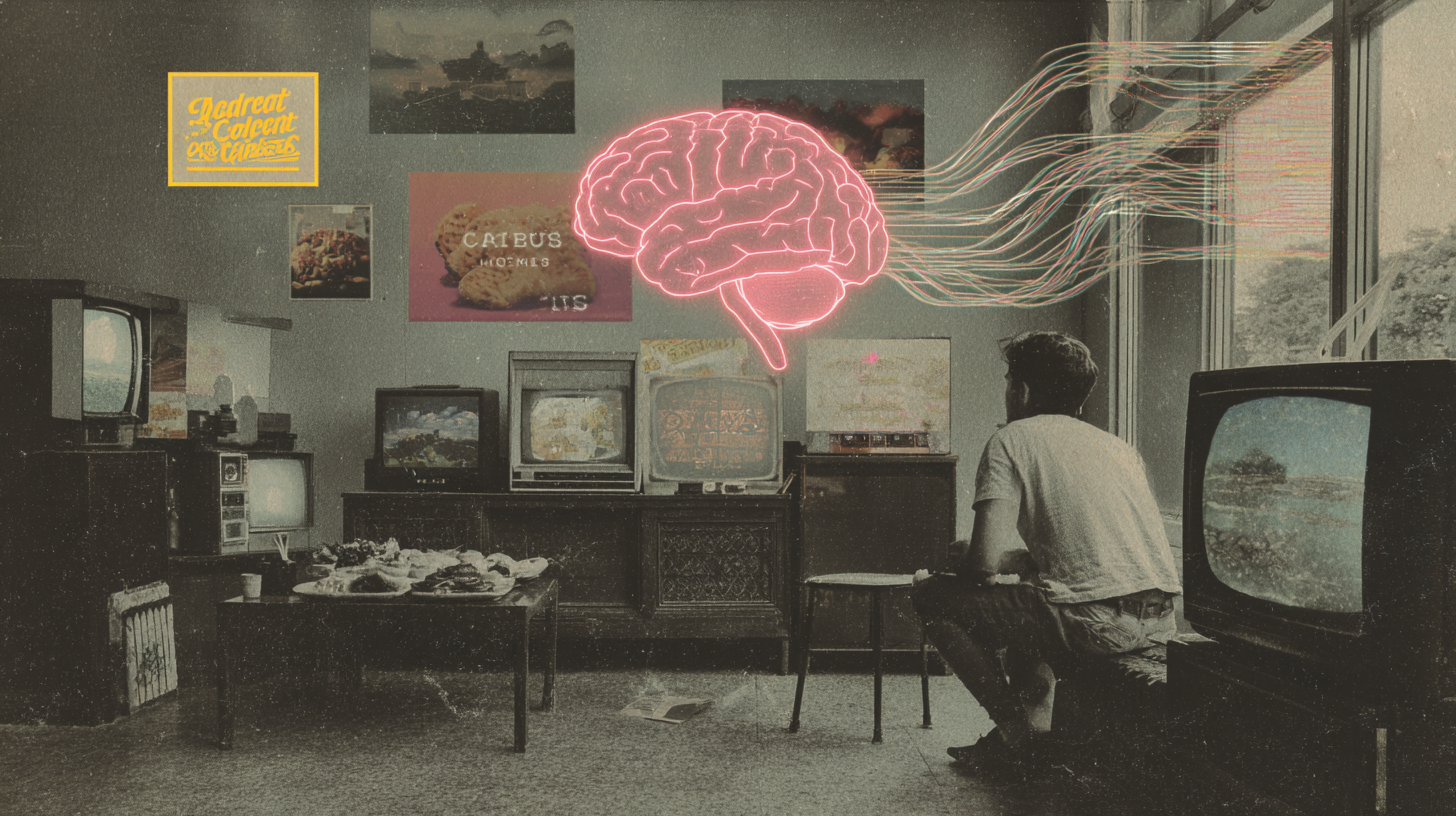
Once upon a time, capitalism dug into the earth. It pulled out coal, oil, sugar, and rubber. It extracted physical things - minerals, crops, timber - and turned them into profit. Extraction was a material act. A visible act. A violent act.
But now, the mines have moved. They are no longer in Congo or the Amazon. They are in you.
Today, capitalism's great innovation is to extract not from land, but from life. Not from nature, but from your nervous system.
Your attention, anger, desire, loneliness, joy, and pain are now the raw materials of the global economy.
Every scroll, click, post, like, swipe. Every outrage. Every craving. Every emotionally charged second you spend online. That is the product. That is the commodity. And you are the mine. Data brokers call it "engagement." Platforms call it "content." Investors call it "growth." But let's be honest: it's emotional strip-mining. Your inner life, industrialised.
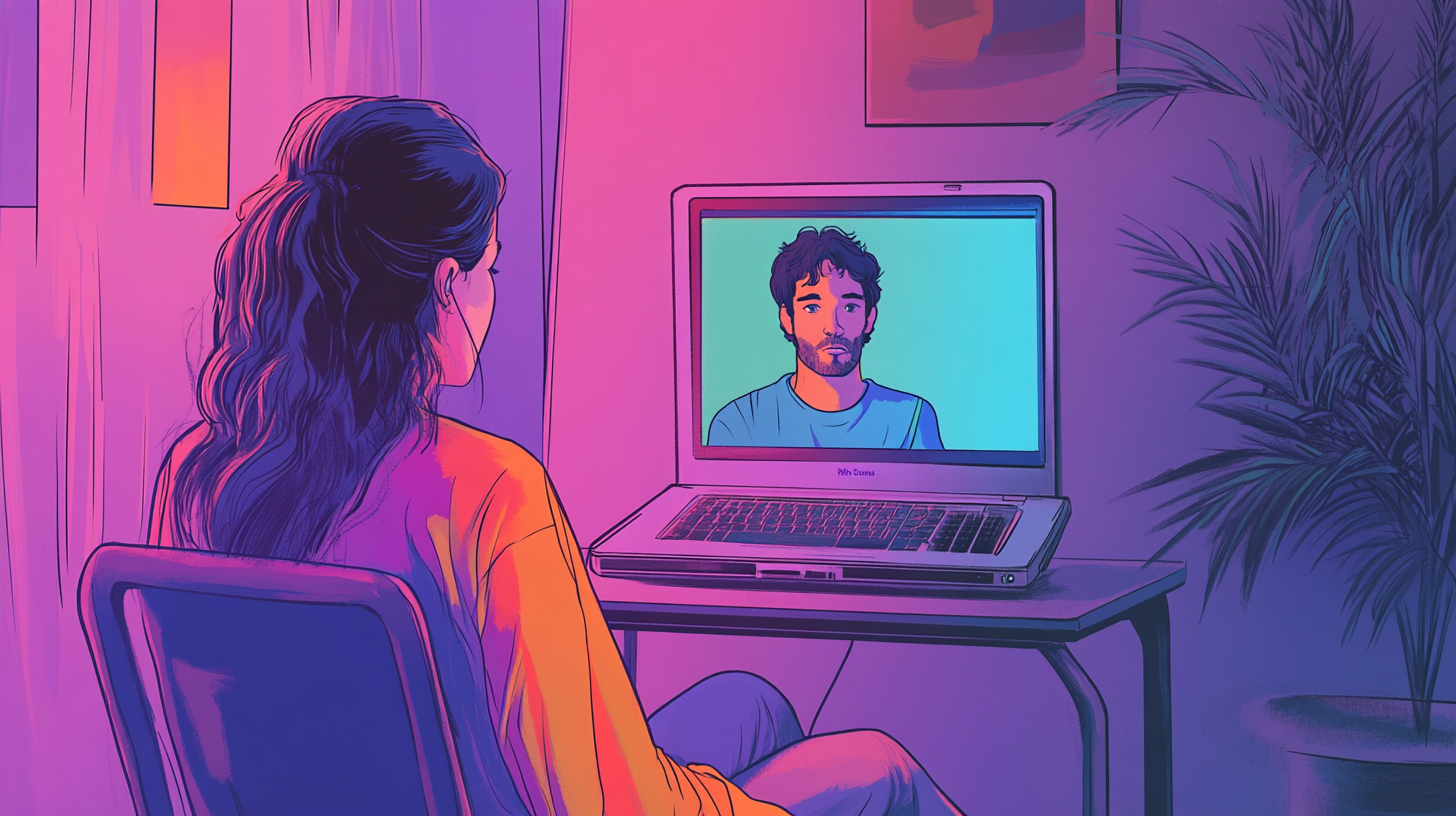
And what are the tools of extraction? They're no longer pickaxes or drills. They're algorithms. Notifications. Infinite scroll. Targeted ads. Parasocial intimacy. Social comparison. Manufactured urgency. The illusion of choice. What oil barons did to the land, attention capitalists are now doing to the soul.
And just like the land-your inner world is being left depleted, hollowed out, and too exhausted to regenerate. Let's be clear: this is no conspiracy. This is the business model.
A billion-dollar app doesn't care if you're happy. It cares if you're hooked. It optimises not for meaning or truth, but for the feeling that will keep you coming back. Rage works. Envy works. Doomscrolling works.
Sadness? Package it into a trend. Horniness? Monetise it. Grief? Make it into a brand story. Joy? Gate it behind a paywall. Insecurity? Now there's a whole industry for that. Everything becomes extractable. Everything becomes usable.
And the irony? The resources used to fuel this new extraction - lithium, cobalt, rare earth metals - are still torn from the ground. But now they're refined not to power machines of production, but machines of consumption. Devices that keep you watching. Wanting. Clicking.
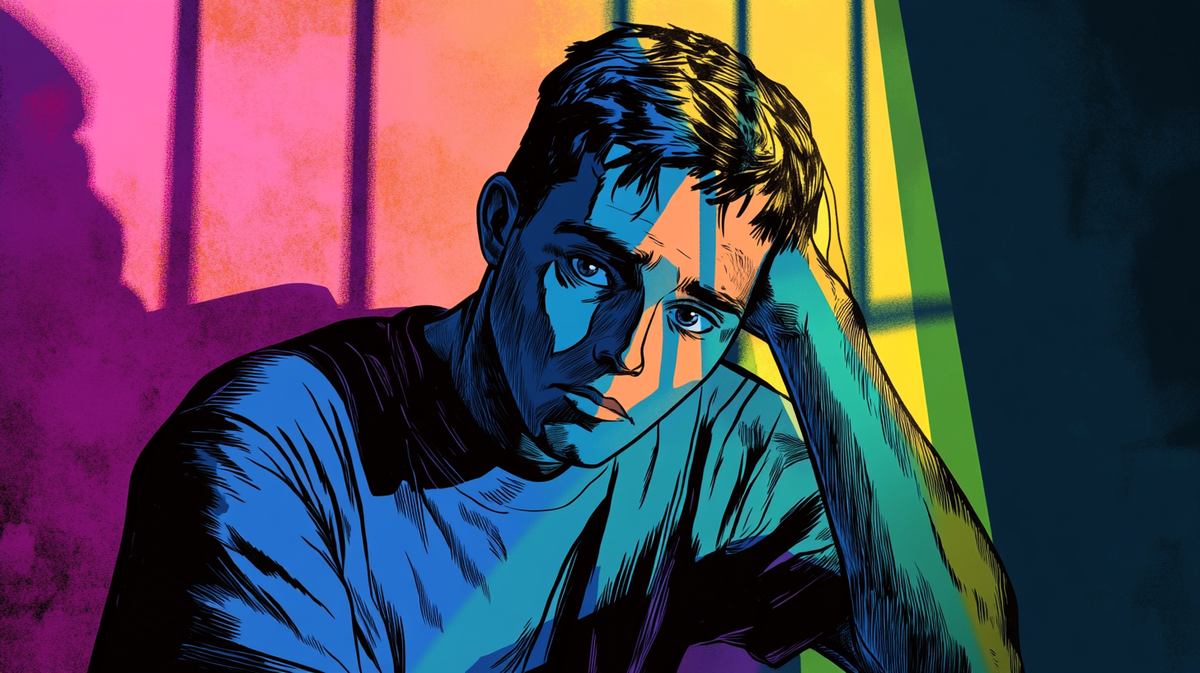
You are no longer just the consumer. You are the consumed. Capitalism has always adapted. And now, in its most intimate phase, it no longer needs to own your labour or your land (it owns that already). It just needs your feelings.
But this kind of extraction has a cost. It hollows you out. It makes your emotions performative, your attention fractured, your sense of self porous and market-ready. You become a feedback loop of your own commodified psyche. A walking reaction. A soul fed through an ad-targeting model.
And at the end of the day, when you feel empty, scattered, and strangely sad, you're not broken. You're just mined out.
The Brain Wasn't Built for This
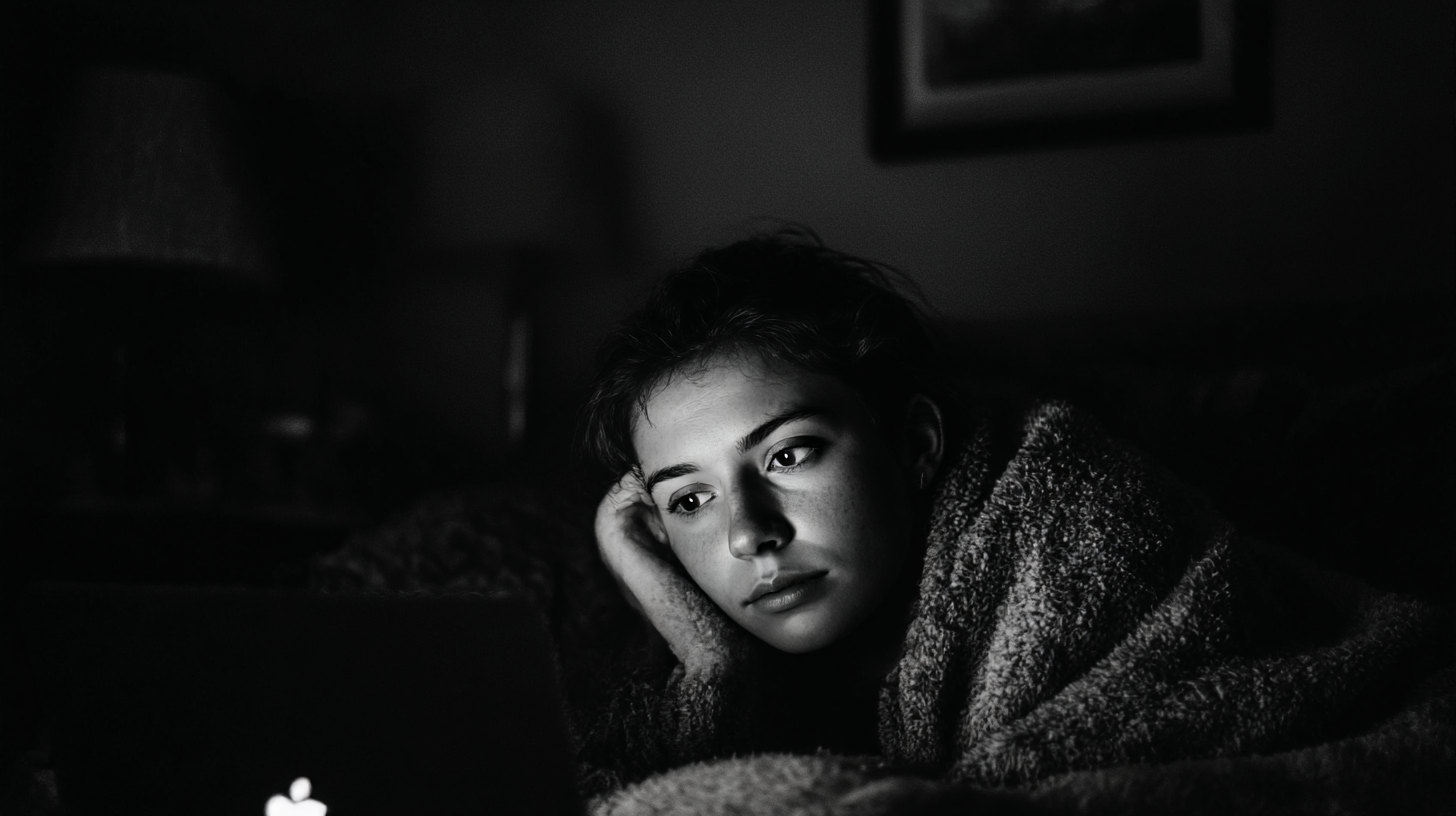
Here's something most people don't realise: your emotions aren't just reactions, they're predictions. The neuroscientist Lisa Feldman Barrett argues that emotions aren't hardwired responses to the world. They're simulations. Your brain looks at your past experiences, checks your bodily signals, scans the external chaos for meaning, and then decides: "This must be fear." Or sadness. Or nothing at all.
But what happens when the inputs are overwhelming, contradictory, or constant? What happens when, before 9am, you've absorbed 200 data points: from global catastrophe to TikTok dances to your ex looking radiant in Tuscany?
Simple: your brain defaults to efficiency. It stops trying to make sense of the noise. The simulations flatten. You feel less. And eventually, you stop trusting your own reactions at all. This isn't brokenness. It's adaptive shutdown. It's your brain saying, "I can't do this. So I won't."
We Are Overstimulated and Underconnected
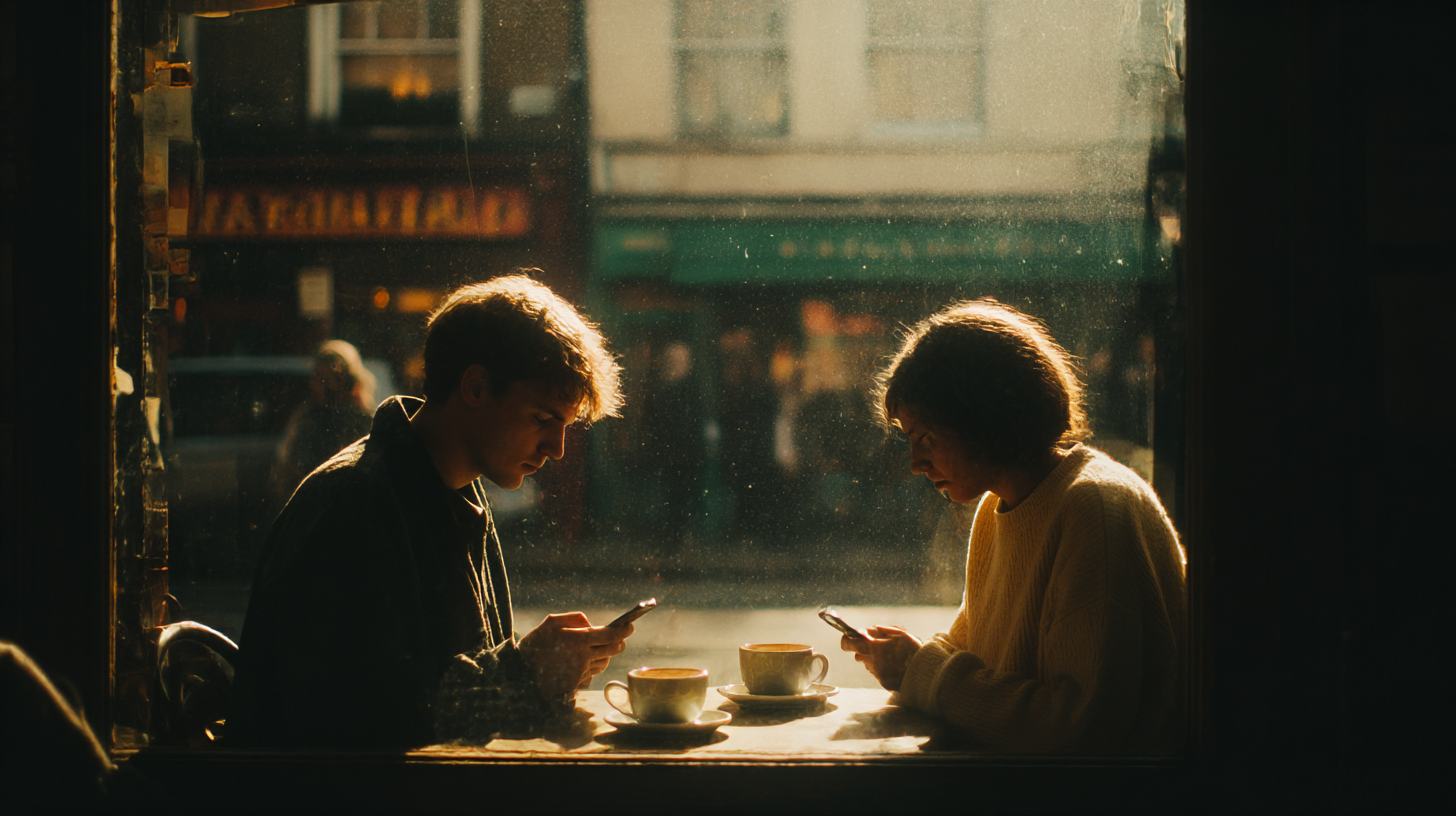
Modern life has made numbness not just common - but rational. Our brains evolved for tribal living. Face-to-face interaction. Co-regulation through touch, voice, breath. But the average person today spends more time talking to screens than to people. More time reacting to events they can't control than engaging with the lives right in front of them. I know I certainly do.
Social media makes this worse - not just because it bombards us with information, but because it curates it perfectly. You're shown everything designed to elicit emotion: rage, envy, grief but with none of the context, none of the resolution, and none of the human closeness that normally helps you metabolise it.
So you carry it alone. Silently. And after a while, it's just easier not to feel at all.
The Death of the Grand Narrative
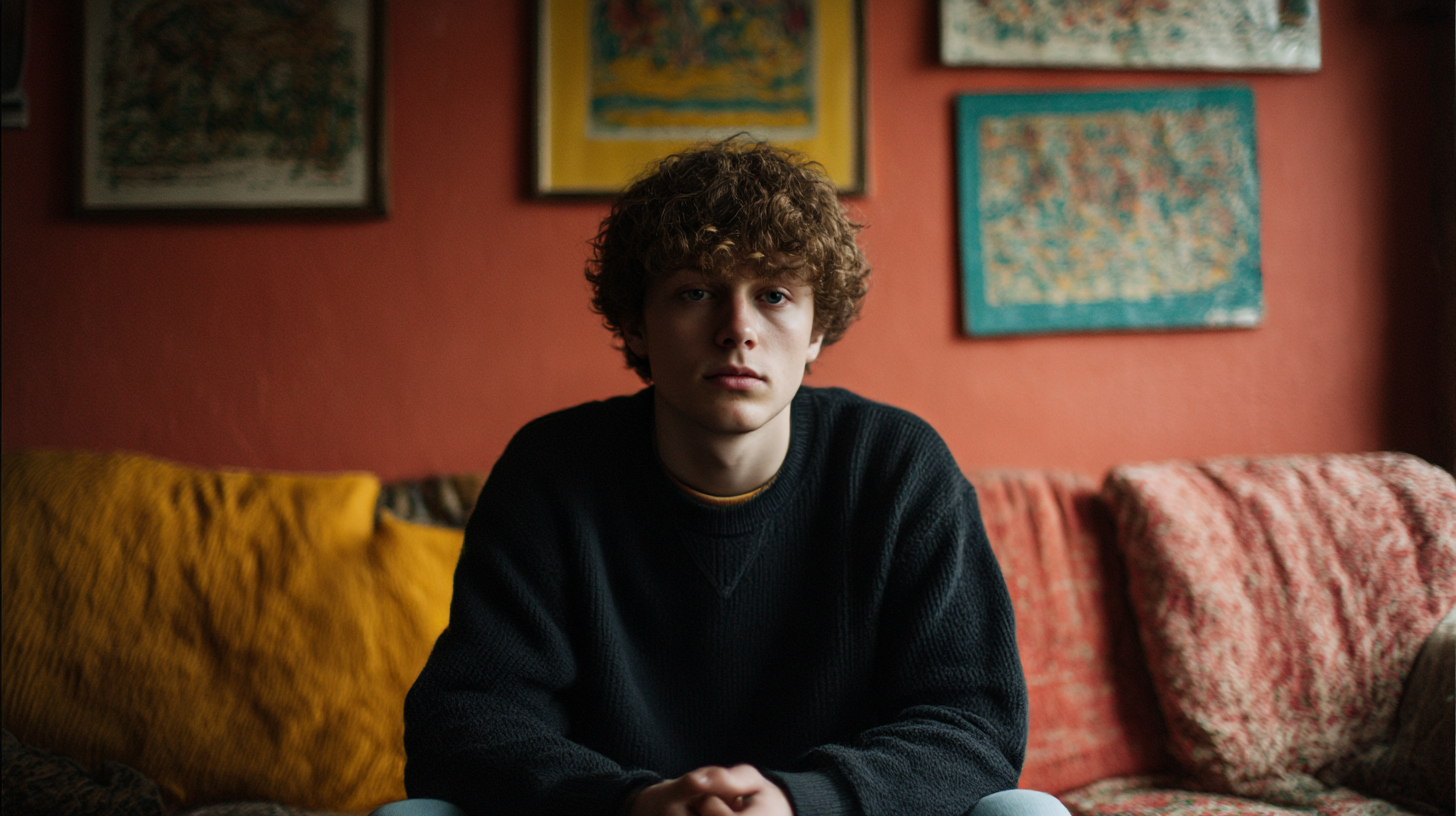
Now let's step back.
Adam Curtis has long argued that modern political and cultural systems have abandoned big, coherent stories. Once, we were told who we were: through religion, through ideology, through shared myths of progress. Now, that scaffolding is gone. What's left is personal branding and algorithmic tribalism.
We don't live in a story anymore. We live in a feed. And when everything is fragmented, and every narrative competes with its opposite, the only safe move is to detach. Believe nothing. Feel little. Drift.
This is the emotional condition of postmodernism with push notifications: a world where the only coherence is what you build for yourself - but even that is borrowed from elsewhere. So what do we do? We shrink.
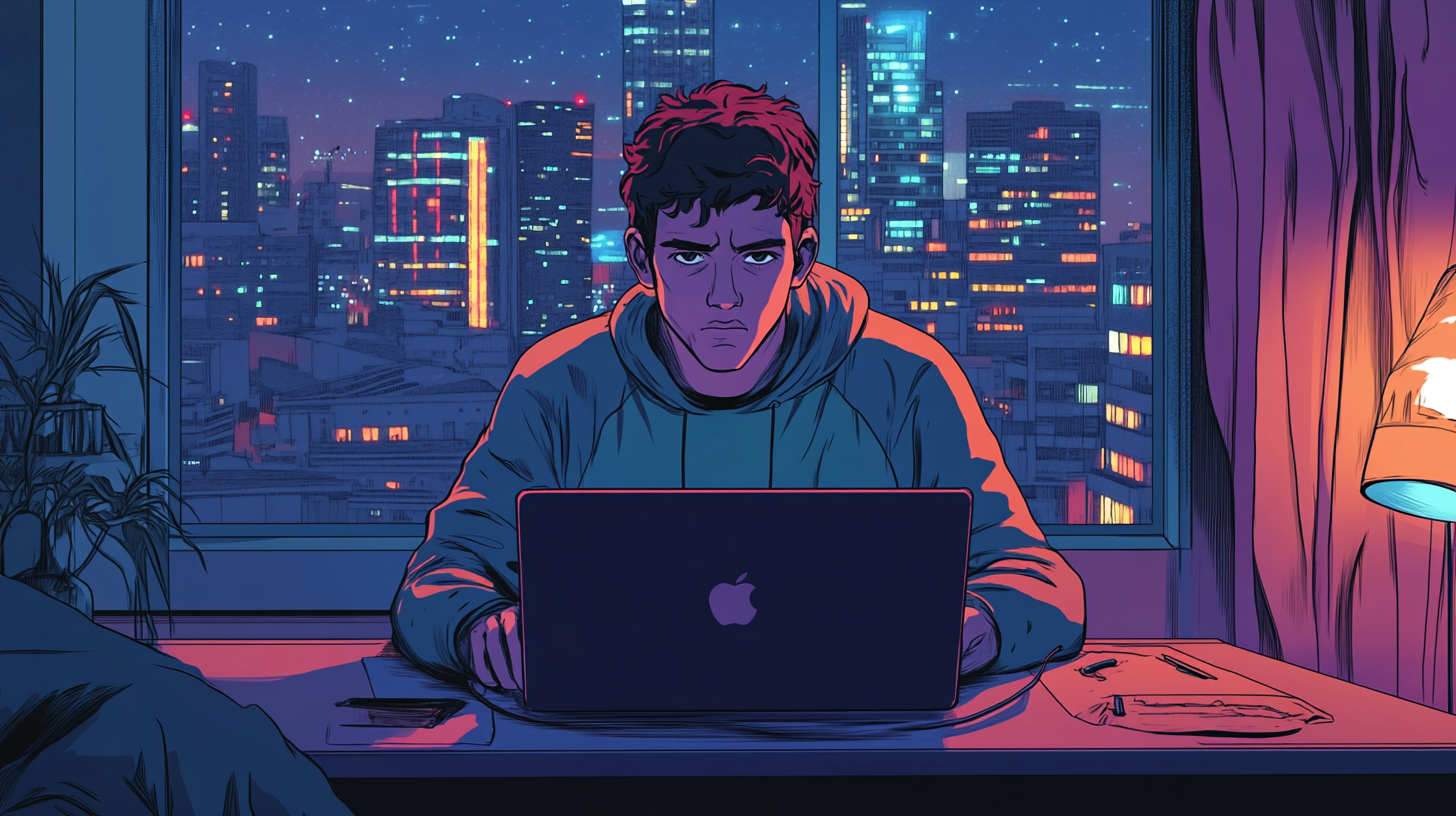
We build small, controllable worlds: morning routines, Spotify playlists, oat milk preferences. We optimise our sleep cycles while the planet burns. We outsource hope to tech bros and trade real connection for "vulnerability" in a caption.
We become CEOs of our own emotional minimalism: "If I just do these 8 things, maybe I'll feel okay."
And you know what? Sometimes it works. Sometimes, retreat is wisdom. Sometimes, creating a smaller life is an act of survival in a world that's simply too much. But here's the problem: We've gotten so good at retreating that we've forgotten how to come back.
Allow me to make a case for that overgrown path over there. The one you think you’ve walked down, but can’t quite remember.
This Isn't Just Burnout. It's Civilisational Fatigue.
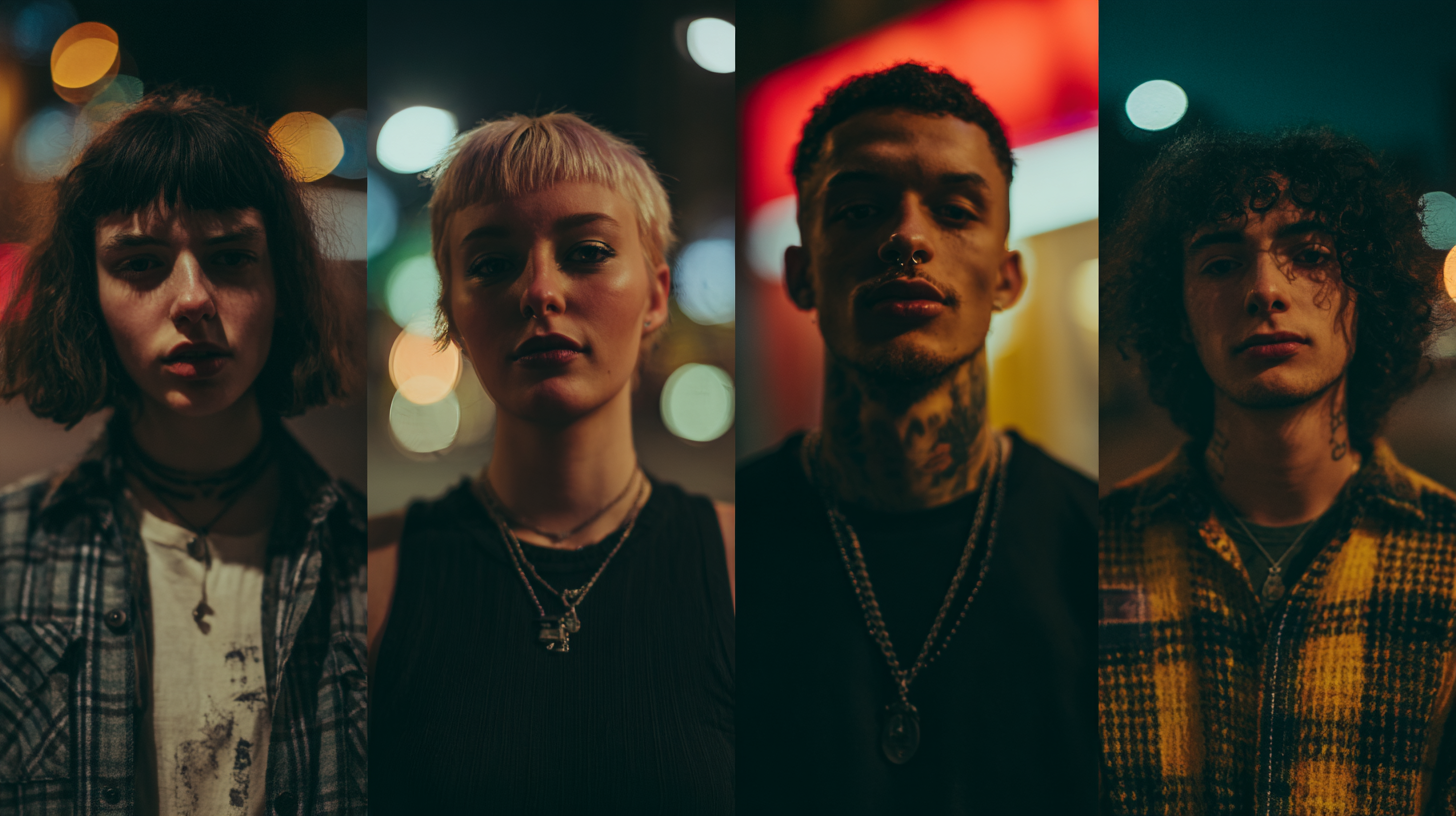
Here's a dangerous idea: what we're experiencing isn't just personal. It's structural. It's not your morning routine that's broken, it's the entire atmosphere you're trying to breathe in.
We talk about burnout like it's an individual malfunction. You worked too hard. You didn't take enough breaks. You need to download Headspace and try forest bathing. But what if it's bigger than that?
What if burnout is the rational outcome of trying to function in systems that are emotionally, economically, and existentially unsustainable? What if your numbness isn't dysfunction, but a reasonable response to unreasonable conditions?
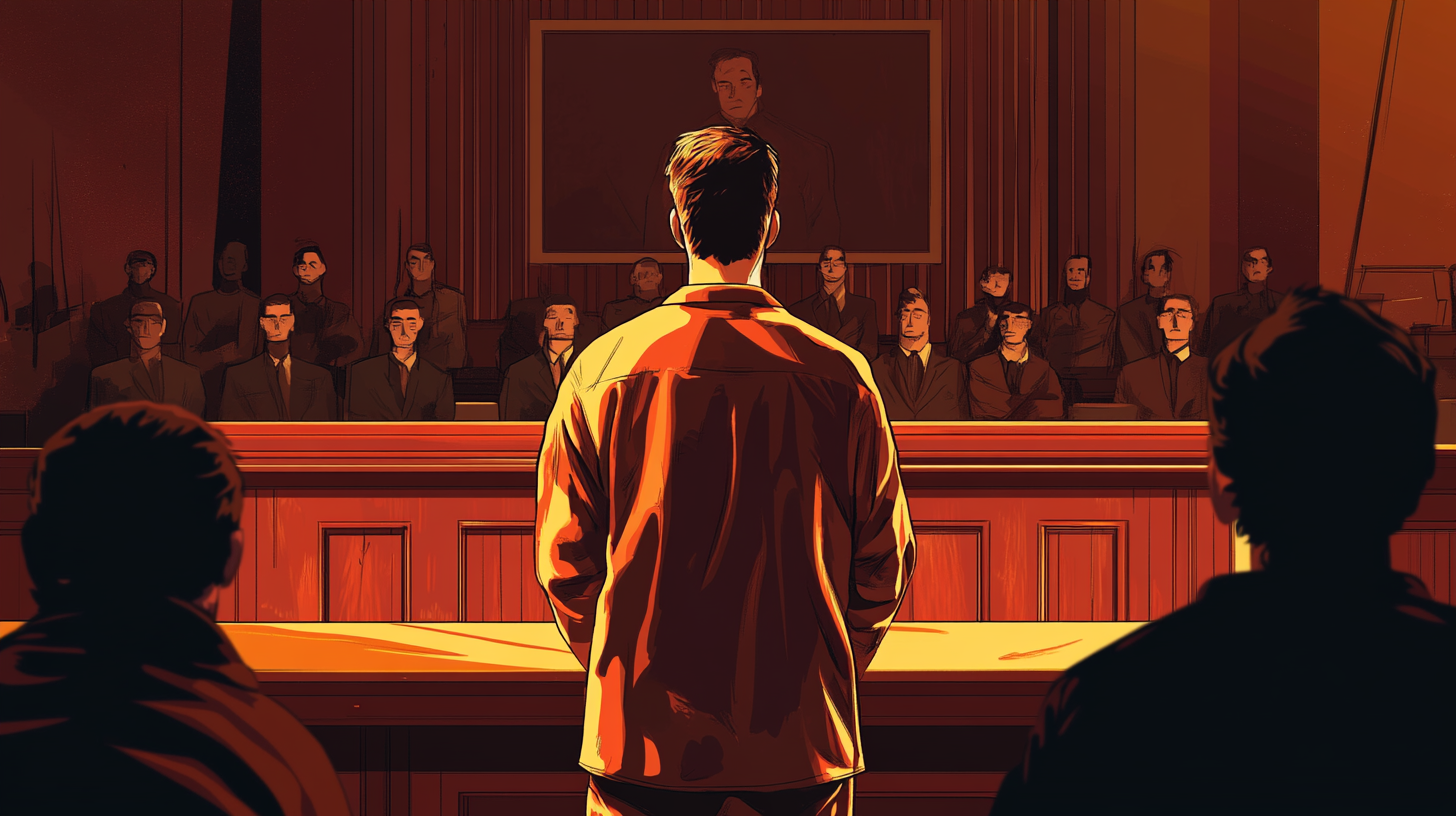
Think about it.
- Climate collapse is no longer a "future" threat, it's now. Fires, floods, heatwaves. You've seen it. You've felt it.
- Governments feel both omnipresent and impotent. They watch, legislate, and surveil - but can't seem to solve a thing.
- Tech monopolies shape your inner world more than your parents ever did. You didn't consent. You just scrolled into it.
Now add in a housing crisis, collapsing social mobility, and a media ecosystem that thrives on outrage but delivers no clarity. You're not overwhelmed because you're weak. You're overwhelmed because the world has become emotionally uninhabitable.
When Therapy Stops Working, and So Does Everything Else
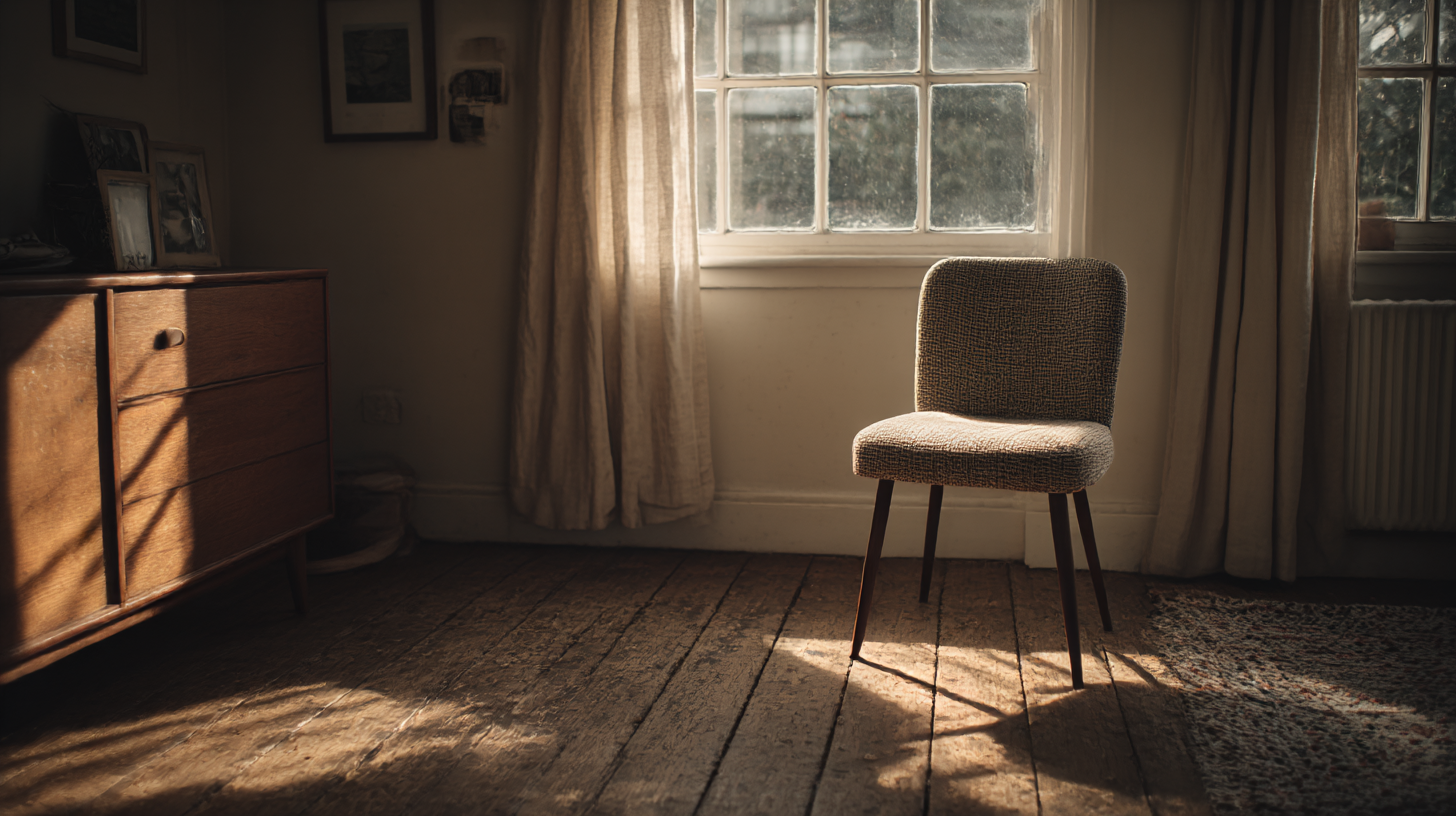
There's something else happening, quietly, in the background. People are turning up to therapy and saying, "I don't know what I want anymore." They are willingly ingesting more medication than ever before, but are still struggling to know how to feel.
People are leaving protest movements not because they don't care, but because they cared so much it broke them. People are quitting jobs, deleting apps, ghosting friends, breaking down. Not in dramatic, movie-like collapses-but in soft, private ways.
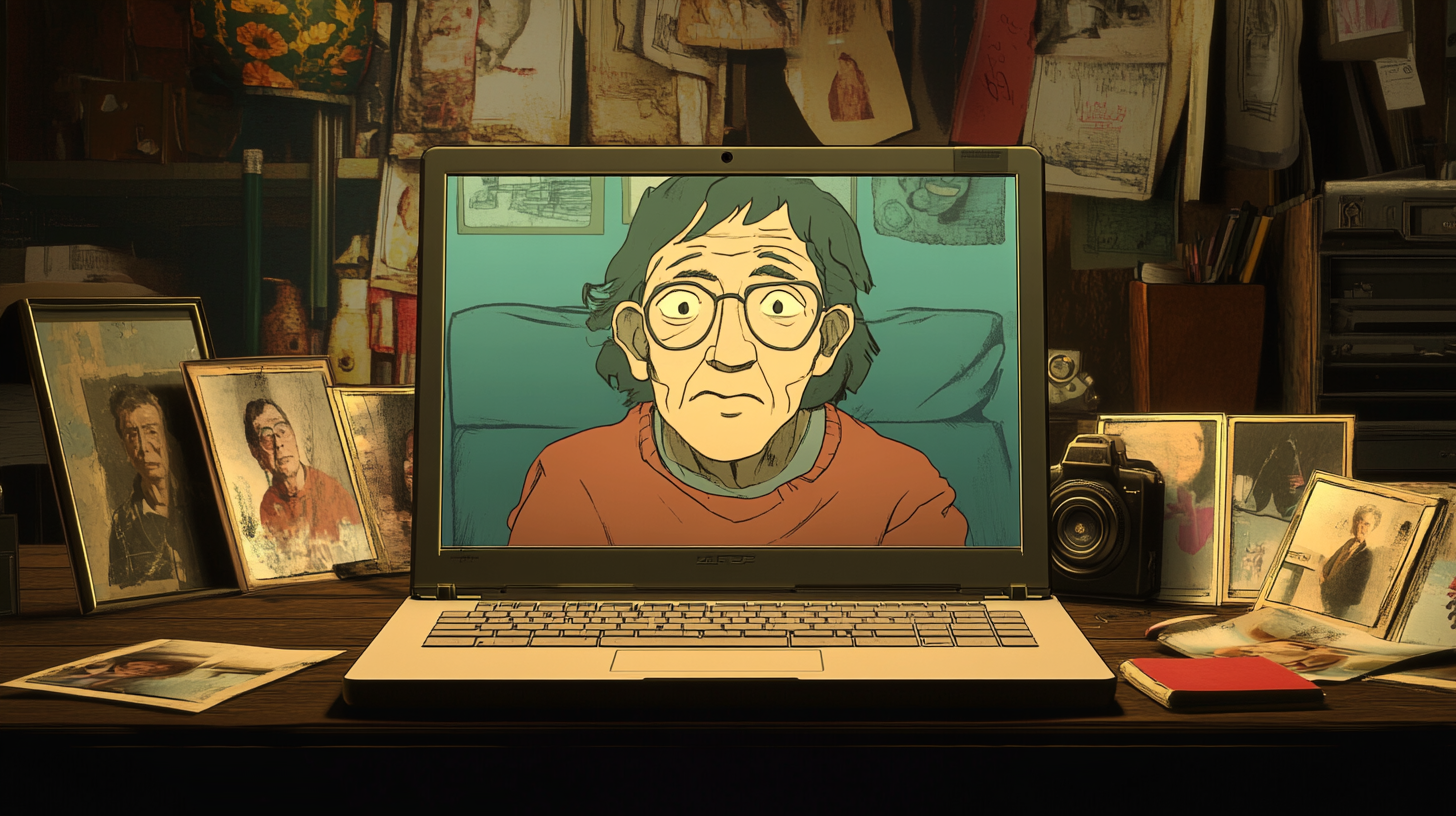
Disengagement has become the new rebellion. Even "self-improvement" feels exhausted. We've tried the cold showers, the journaling, the manifestation rituals. We've hacked our dopamine, optimised our workflows, spiritualised our trauma. And still, there's an ache.
We have so many tools for managing emotion. But the one thing we don't seem to have is meaning. Not curated, capitalist, algorithmic meaning. Real meaning. The kind that requires belonging. Purpose. Belief. Risk. Connection. In an age of ambient uncertainty, the price of getting this wrong can feel too high.
The Lost Commons of Feeling
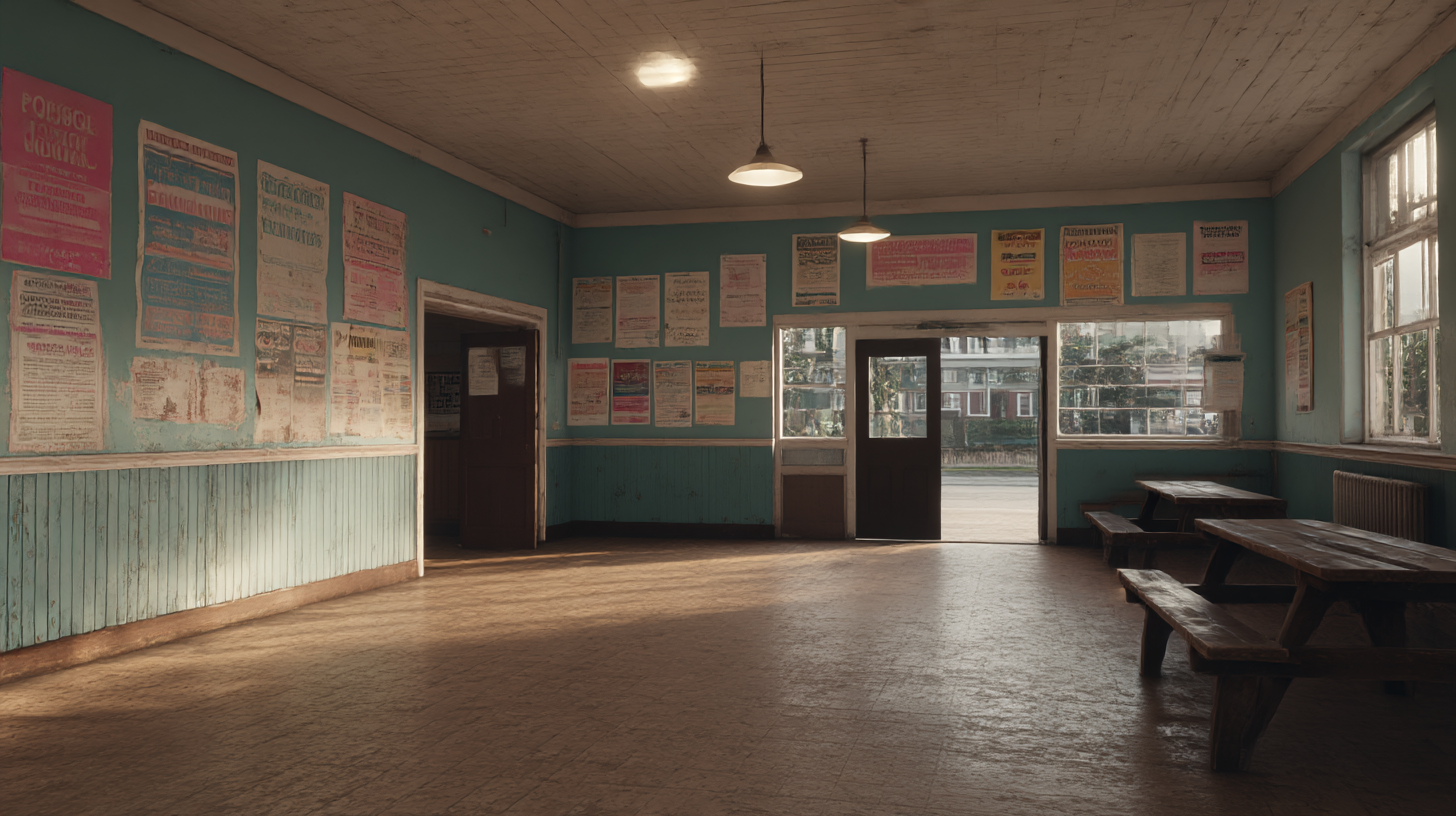
You can track the decline of this meaning by looking at what used to exist, and what's now missing.
- We used to gather in churches. Now we gather in comment sections.
- We used to be part of unions, collectives, clubs. Now we're solo brands.
- We used to tell stories about who we were, now we tell stories about what we consume.
The commons, the shared emotional ground of a society, has eroded. And in its place, we've built walled gardens of curated identity. Little kingdoms of self. No wonder we feel small. We are small. Not because we lack value, but because the structures that once made us feel part of something bigger have been dismantled.
And in that vacuum, numbness makes perfect sense.
Retreat Is Not Cowardice. It's a Clue.
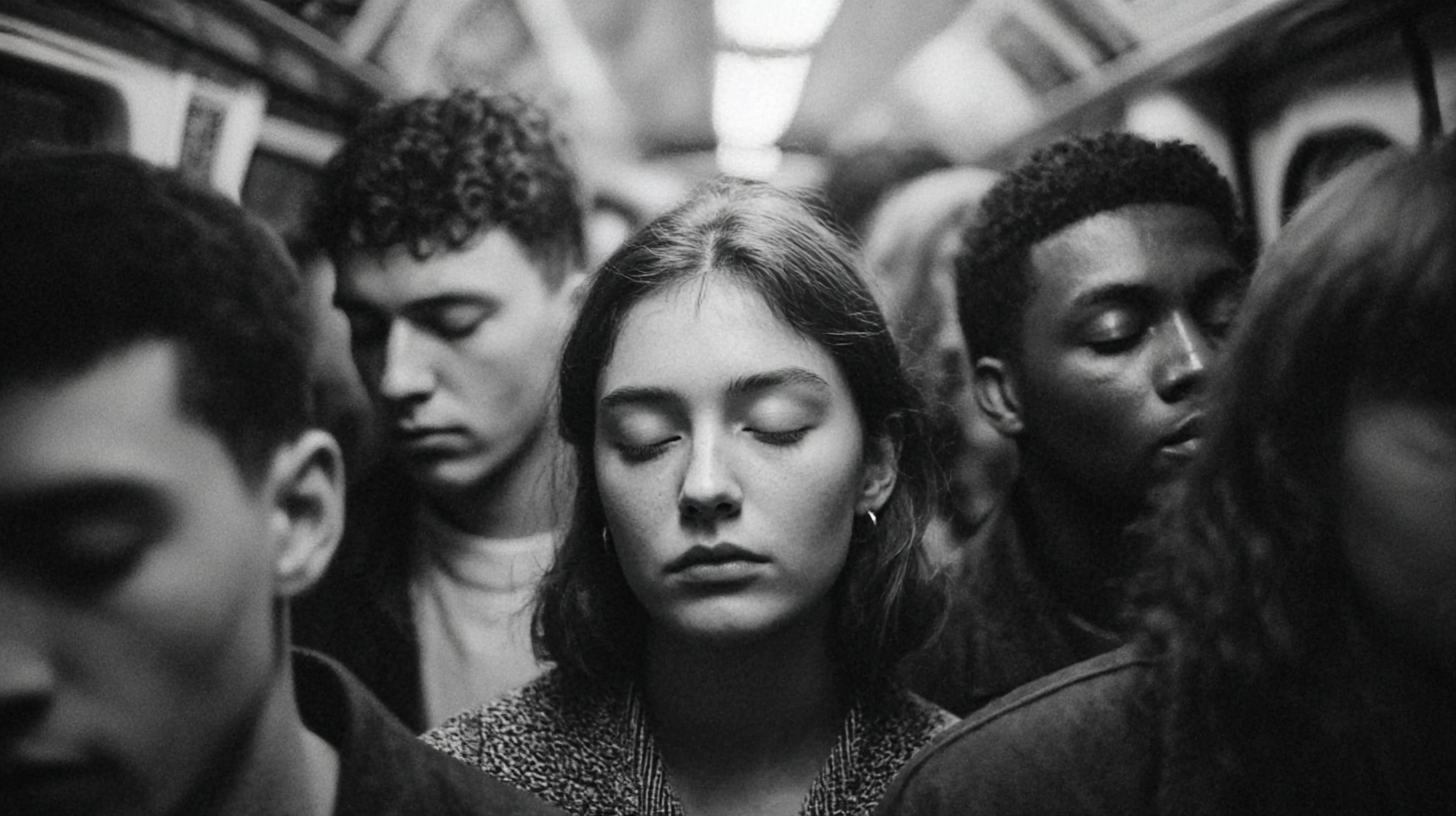
If you're expecting this to turn into some TED Talk about "rediscovering joy" or "choosing happiness," you're going to be disappointed. Because this isn't about feeling better.
It's about understanding the message inside the numbness. Retreat is not cowardice. It's a clue. It's your mind saying: "This world is not safe. This system is not working. I cannot live like this and feel everything." The numbness is a protest. A siren. A final line of defence. And instead of trying to override it, what if we listened? What if we asked: What would a world look like that doesn't make me want to shut down?
What would it mean to build something worth feeling for? If you've made it this far, it's probably because something here rang true. You've felt the fog. The flattening. The ambient uncertainty. The slow erosion of your emotional range. And maybe, somewhere in all of it, you've asked yourself: "Am I broken?"
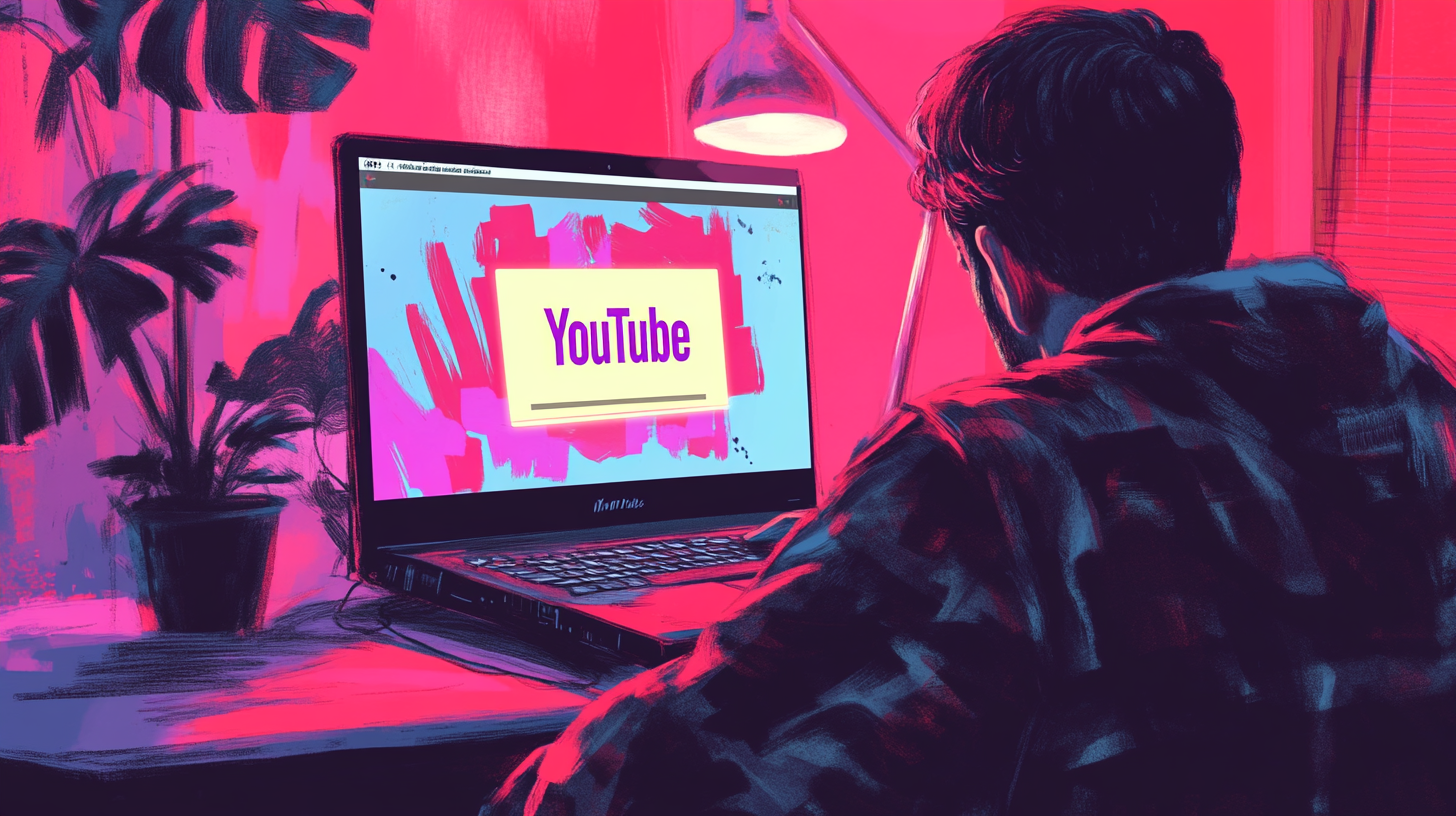
But here's another way to see it. What if this numbness isn't dysfunction, but intelligence? What if it's your psyche saying: "This world does not deserve the full aliveness of me. Not yet." Not until it becomes safer. Slower. More human. Not until you find places where your feelings aren't liabilities. Where presence isn't just performance.
Because here's the thing: numbness is selective. It doesn't kill all emotion. It just shuts the door on the unbearable ones. Grief. Despair. Shame. Powerlessness. And unfortunately, those are often the same doors through which joy, connection, and meaning walk in, too.
You can't numb selectively forever. Eventually, everything gets dimmed. So the question becomes: how do we begin to feel again, without drowning?
The Answer Isn't "Fix Yourself." It's "Find Each Other."
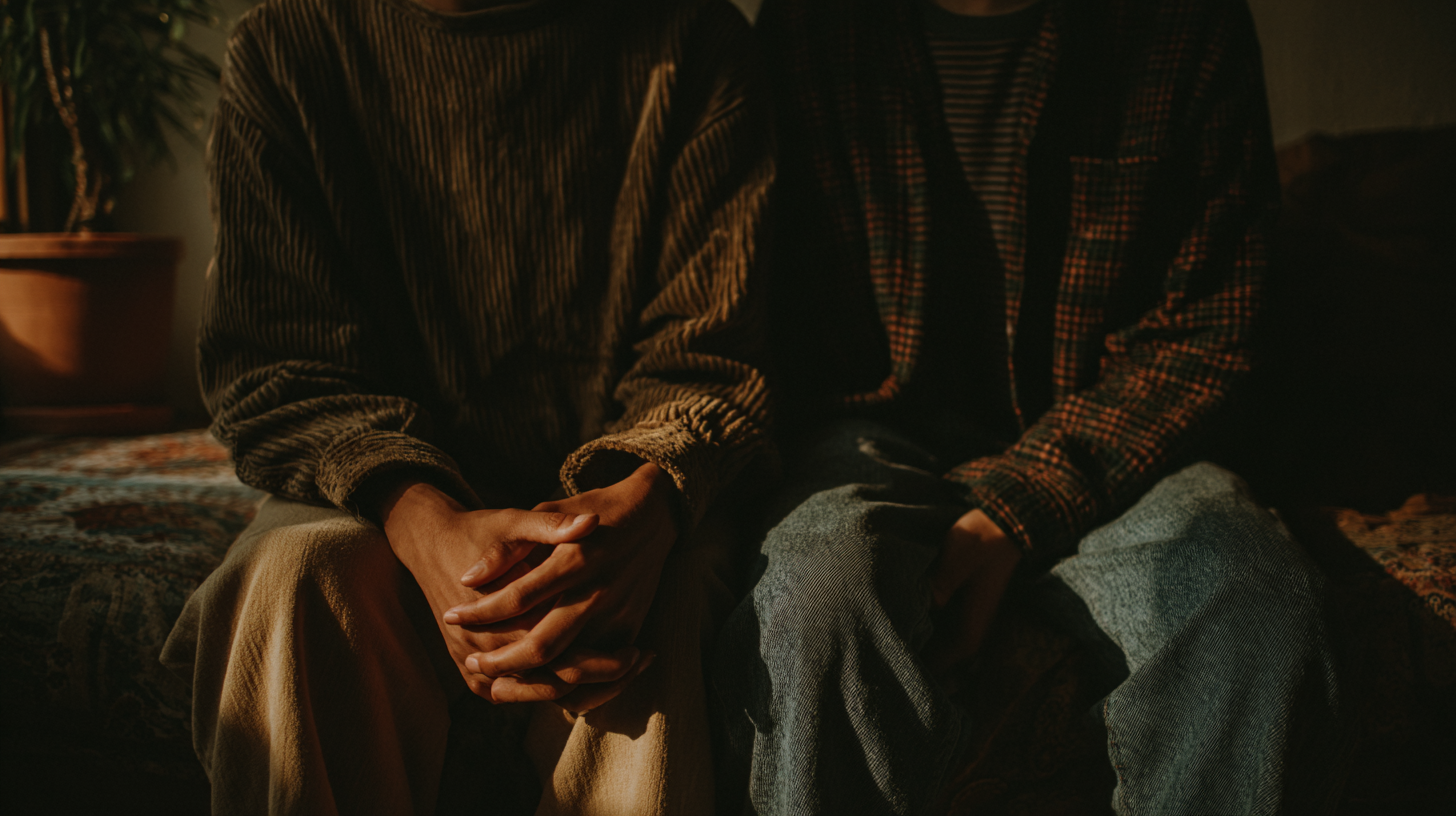
You don't escape numbness by optimising your morning routine or finding the right quote on Pinterest.
You escape it through co-regulation: through people, places, and patterns that remind your nervous system it's safe enough to feel again.
This might mean:
- Sitting in silence with someone who doesn't try to fix you.
- Crying at a piece of music you can't explain.
- Feeling the sun on your neck after weeks indoors.
- Hearing someone name your exact feeling out loud, and suddenly realising, "It's not just me."
This is where the hope lies. Not in grand ideologies or utopian futures. But in small, stubborn moments of human reconnection.
We Need New Spaces. Not New Solutions.
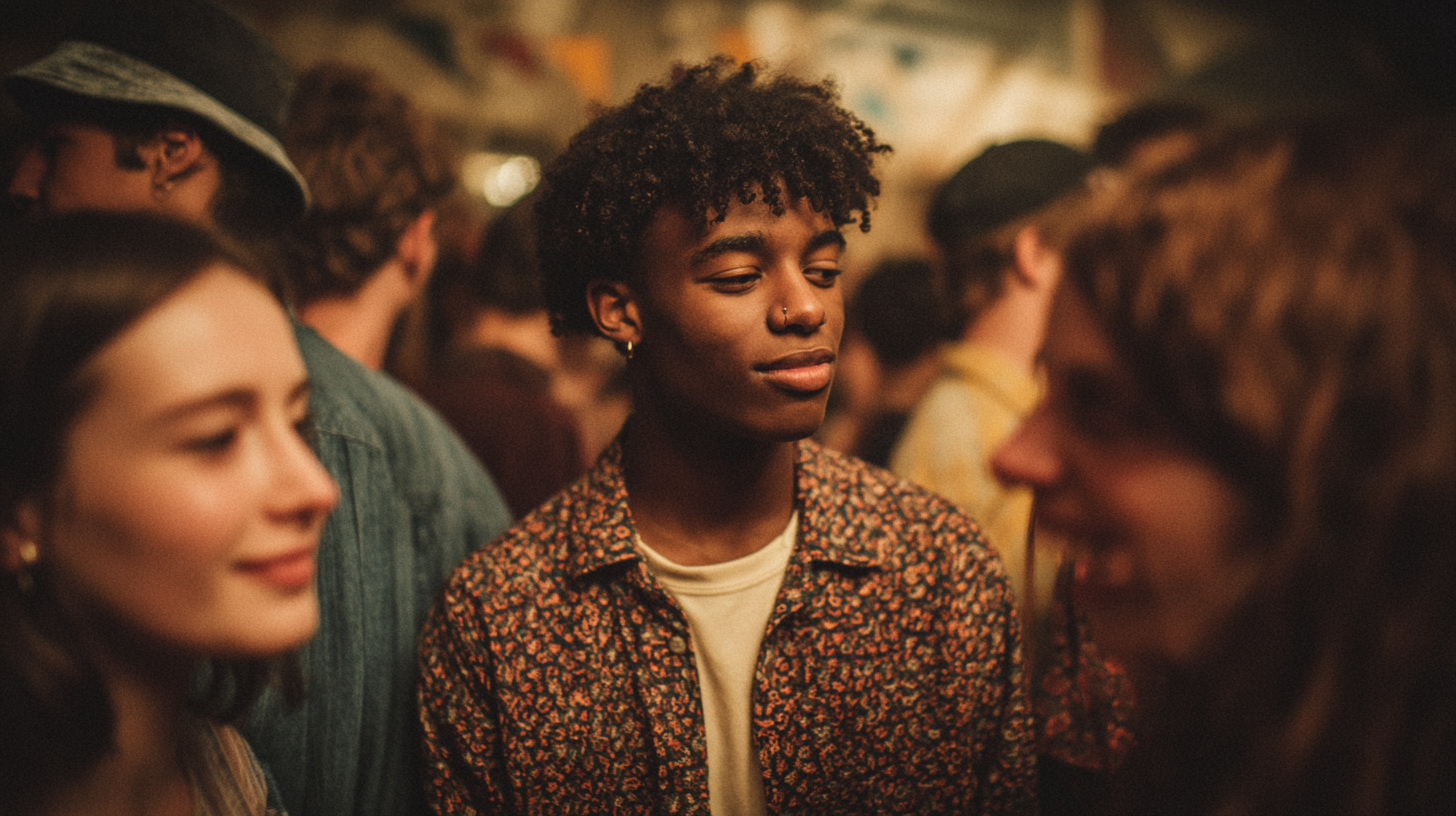
The problem isn't that we don't have tools. It's that most of them are sold back to us by the same systems that caused the damage. We don't need more self-care. We need more mutual care.
We don't need another app. We need a friend who remembers what our voice sounds like. We don't need more productivity hacks. We need somewhere to fall apart. This isn't about rejecting modern life wholesale. It's about creating pockets of resistance inside it.
Places where we're not brands. Not users. Not followers. Just bodies and stories and breath. Not to be extracted and commoditised, but to be cherished and celebrated.
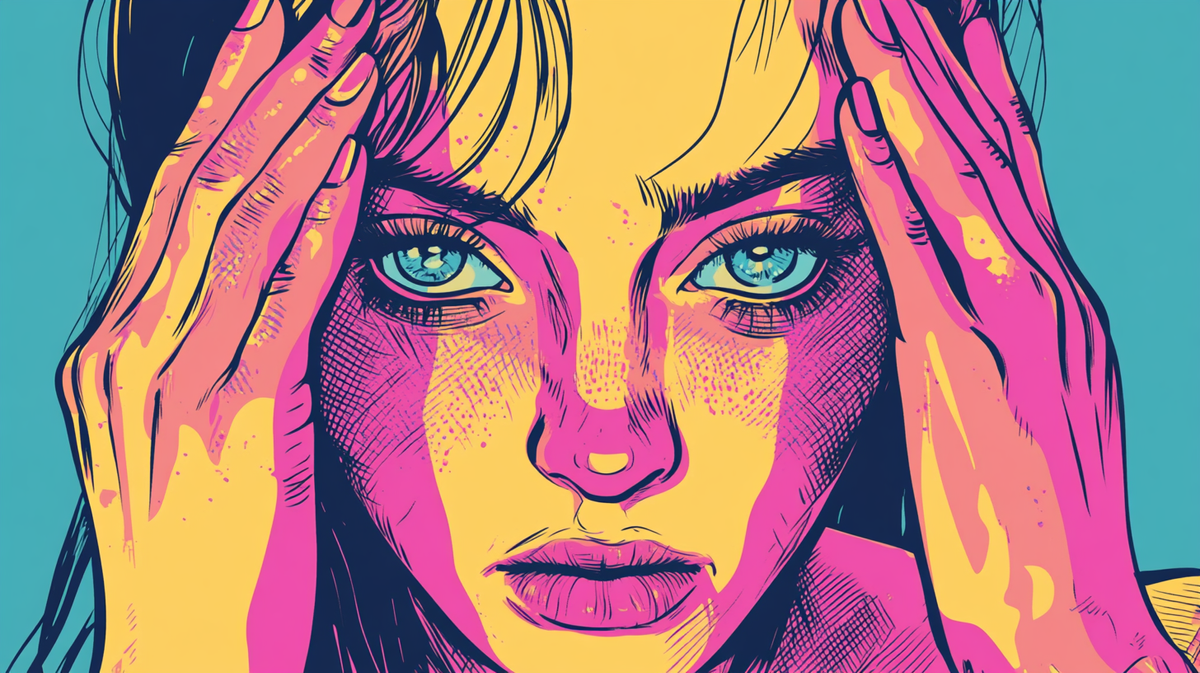
This will take time. And patience. And gentleness we rarely extend to ourselves. Because after years of numbing, your first emotion might not be joy. It might be rage. Or grief. Or nothing at all. That's okay. That's the thaw.
The goal isn't to become hyper-emotional, or perfectly present, or spiritually awakened. The goal is to become available again. To the full spectrum of being alive. To feel heartbreak and know it means you've loved. To feel helpless and know it means you care. To feel joy and let it stay long enough to matter.
The Quiet Radicalism of Showing Up
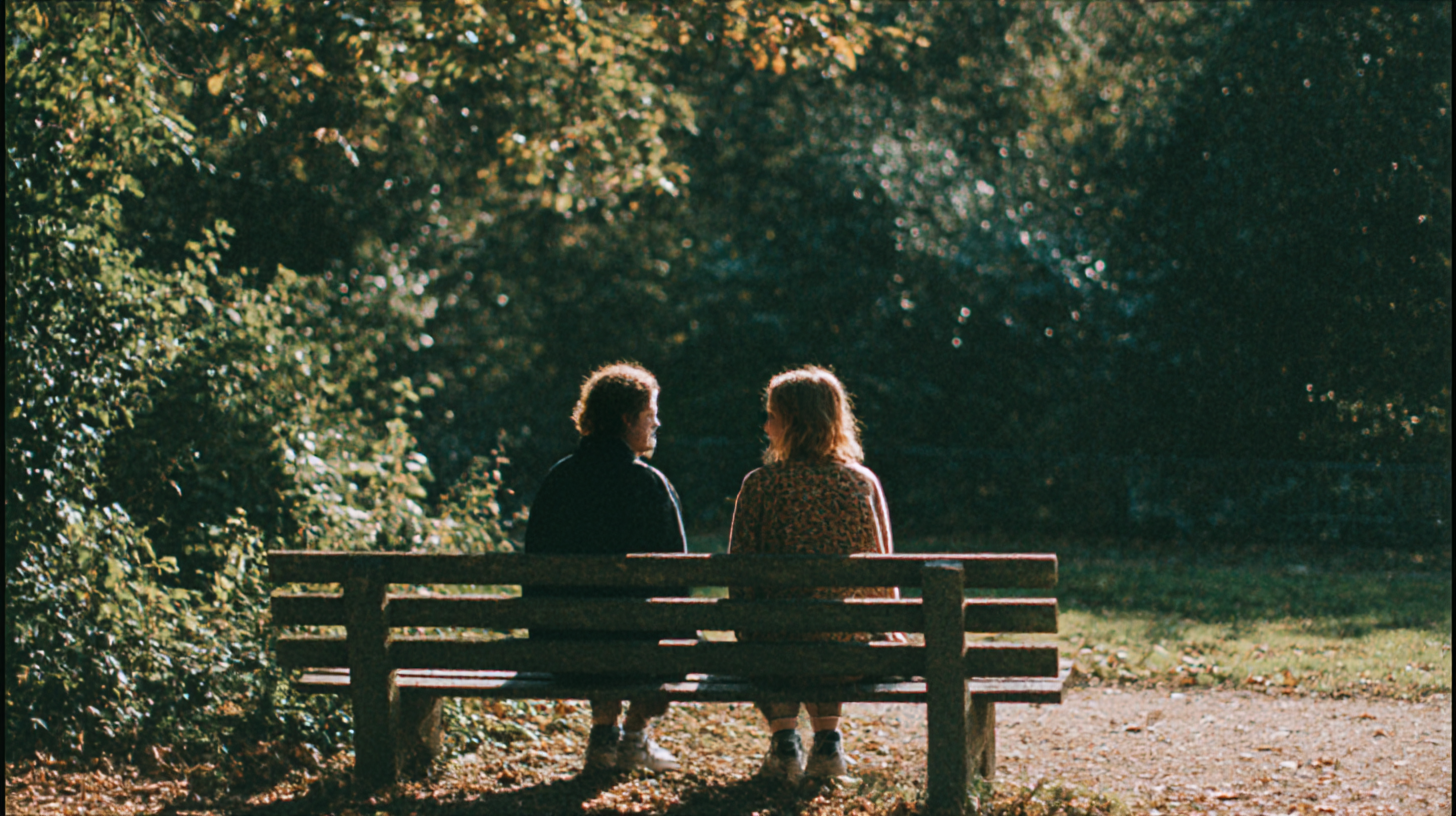
In a world this loud, this fast, this fractured, there is something quietly radical about doing something small.
Joining a choir. Being friends with your neighbour. Saying hello at the corner shop instead of self-checking out. Walking somewhere you could drive. Cooking for someone who didn't ask. Doing something kind without telling anybody.
These aren't hobbies. They're acts of resistance.
Because what we've been taught is that value lives in scale. In metrics. In visibility. That if it isn't monetised or broadcast or turned into a story, it doesn't count. But that's the lie.
What's radical now is not performance, but presence. Not optimisation, but participation. Not building a brand, but belonging somewhere quietly enough that no one claps when you arrive and no one notices when you leave.
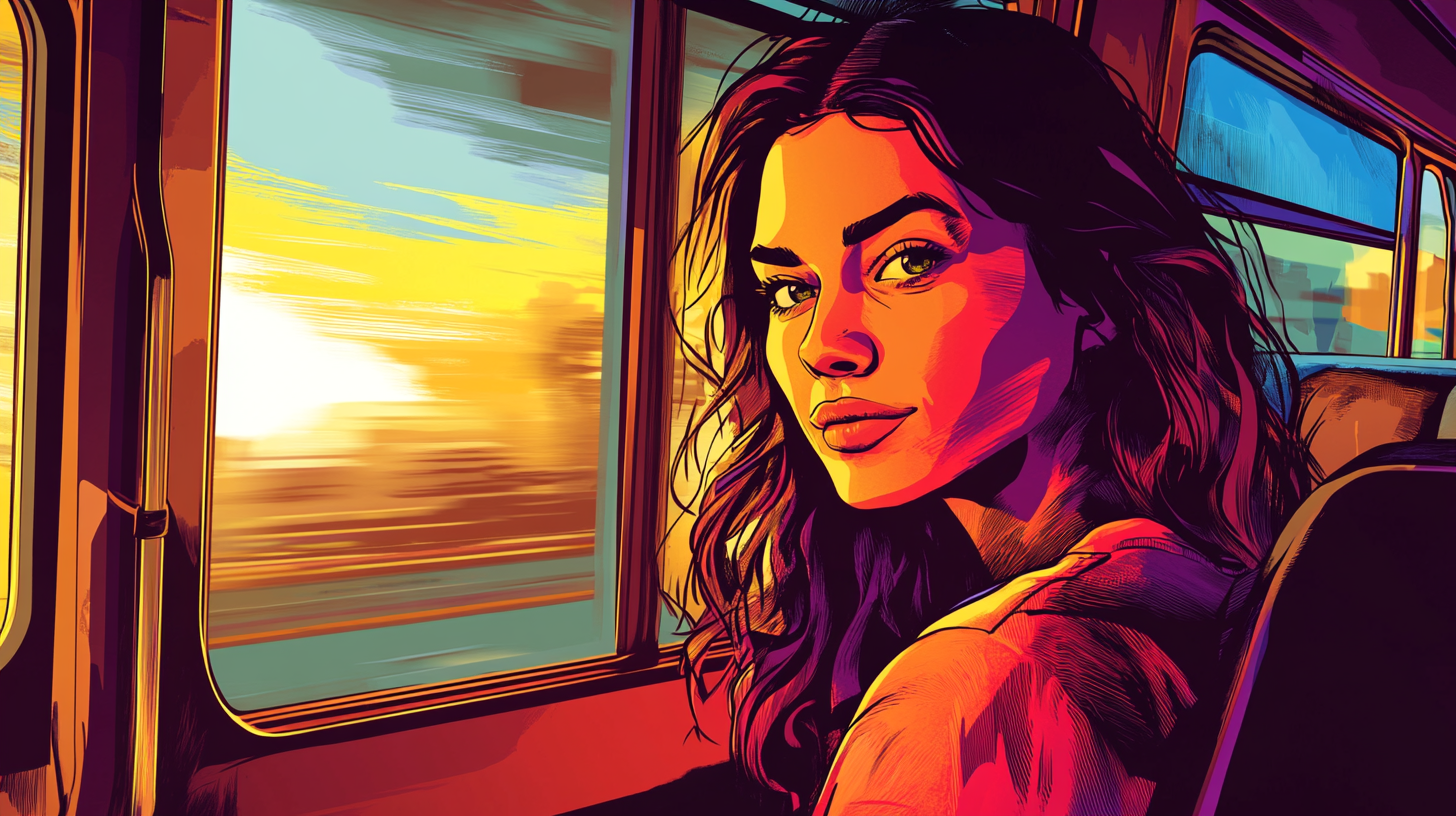
What's radical now is being a body in space. With other bodies. Not selling anything. Not proving anything. Just being together, imperfectly. You don't need a life coach. You need a football team that loses every week.
You don't need another productivity tool. You need a mate who drops soup off when you're ill. You don't need another app. You need a shared table and someone who will look you in the eye and say, "It's really good to see you."
We talk a lot about resistance: resisting burnout, resisting the algorithm, resisting despair. But maybe the most radical act left is not to resist. Maybe it's to soften. To open. To say, "I'll walk with you. I've got time. Let's have some tea together."
And maybe, just maybe, the future we're scared of doesn't exist yet, starts here. With someone looking up instead of down. Someone choosing connection over content. Someone daring to believe that being unseen might be the most sacred thing of all.
Things we learned this week 🤓
- 👩💼 Men and women receive criticism from loved ones differently.
- 💊 Longer-term anti-depressant use creates more intense withdrawal than previously thought.
- 😎 Turns out what is cool is more universal than we first thought.
- ❤️🔥 Friends are better at protecting against depression than lovers.
Just a list of proper mental health services I always recommend 💡
Here is a list of excellent mental health services that are vetted and regulated that I share with the therapists I teach:
- 👨👨👦👦 Peer Support Groups - good relationships are one of the quickest ways to improve wellbeing. Rethink Mental Illness has a database of peer support groups across the UK.
- 📝 Samaritans Directory - the Samaritans, so often overlooked for the work they do, has a directory of organisations that specialise in different forms of distress. From abuse to sexual identity, this is a great place to start if you’re looking for specific forms of help.
- 💓 Hubofhope - A brilliant resource. Simply put in your postcode and it lists all the mental health services in your local area.
I love you all. 💋
